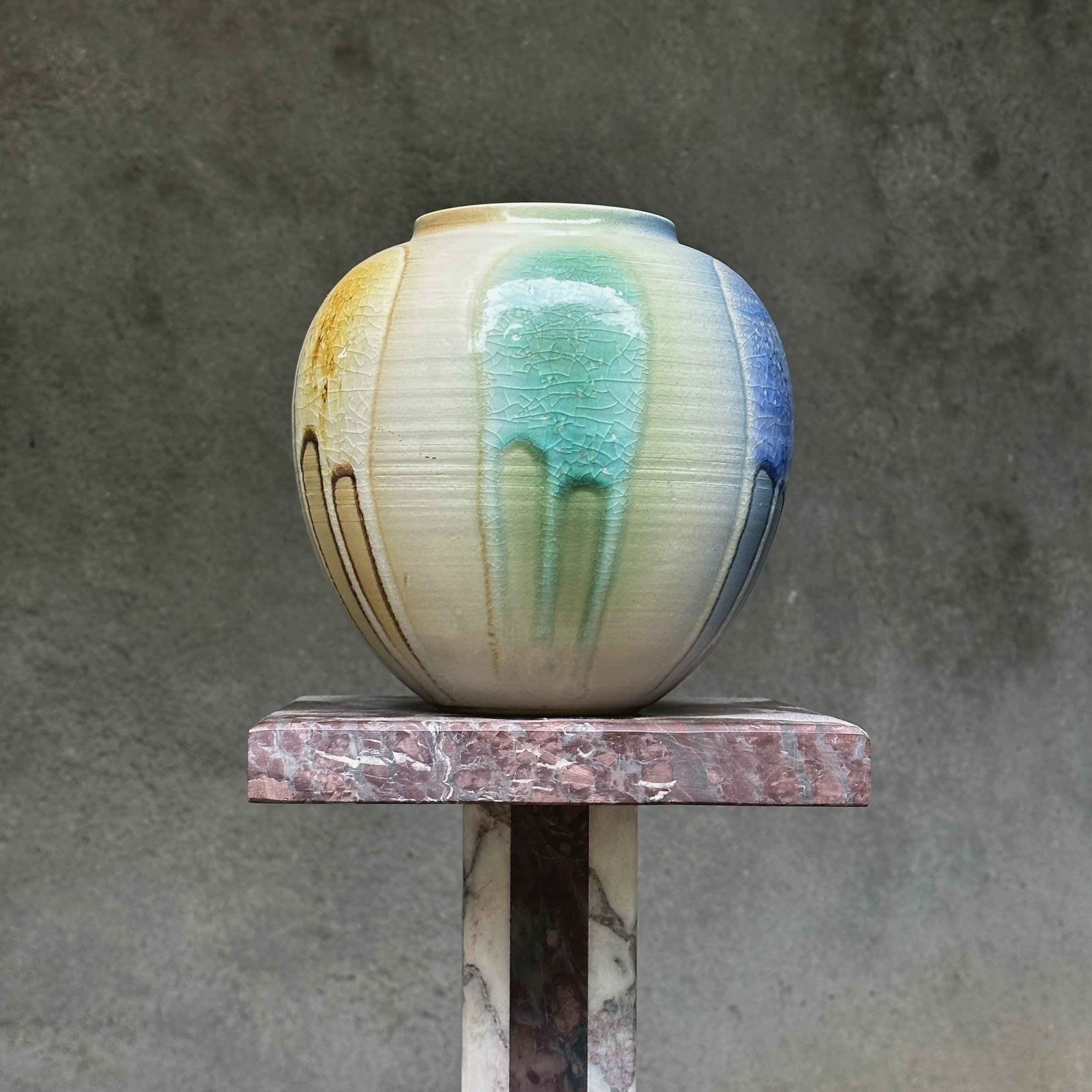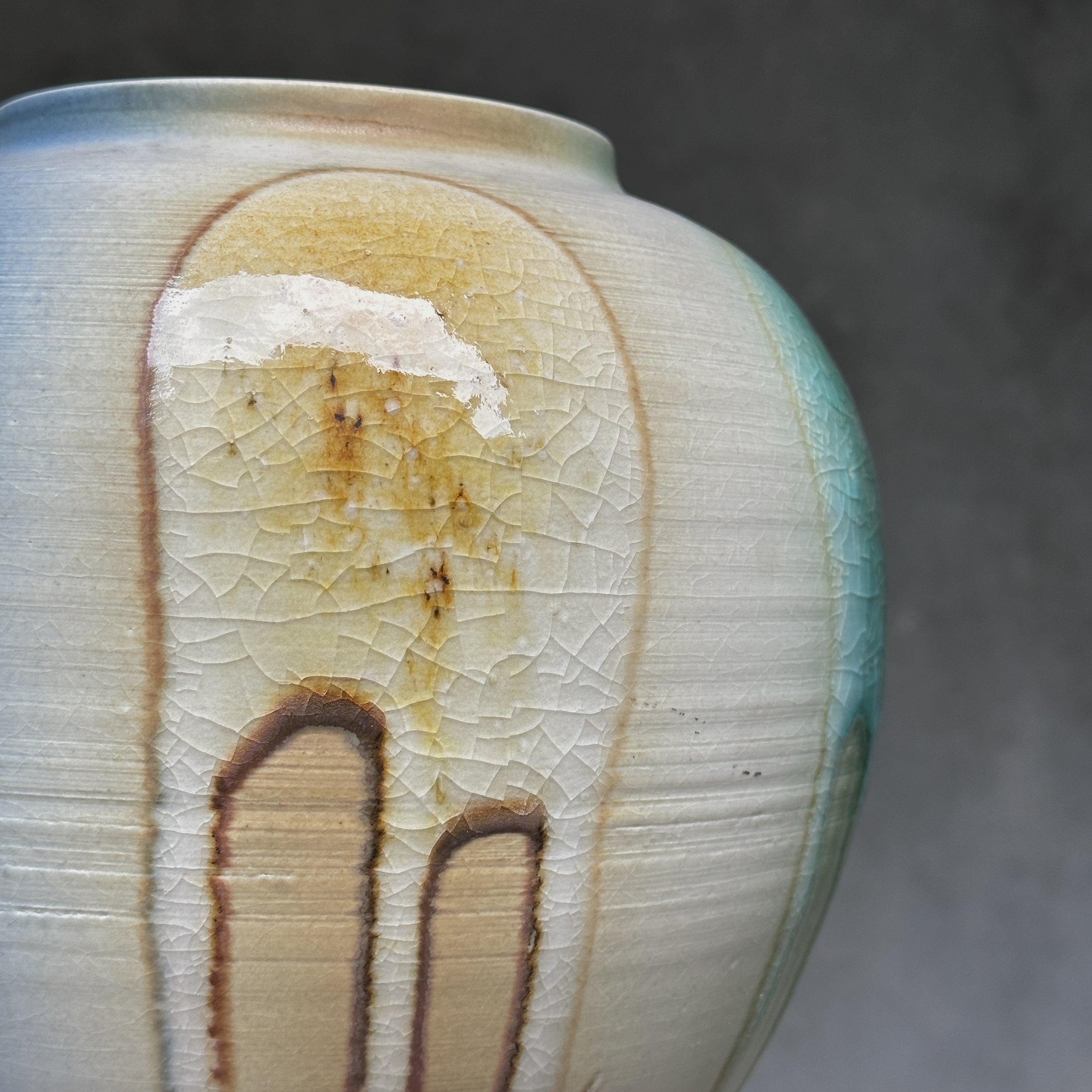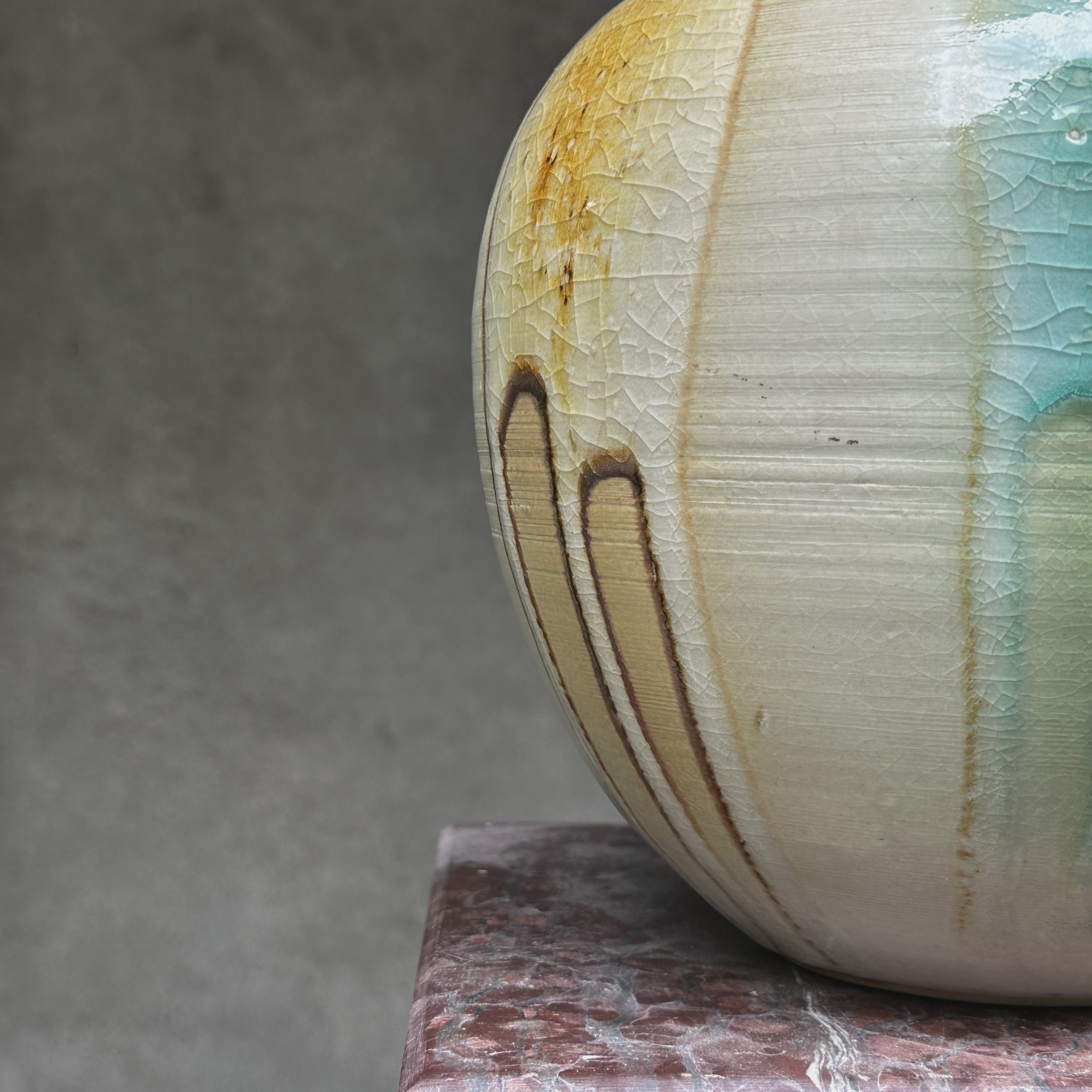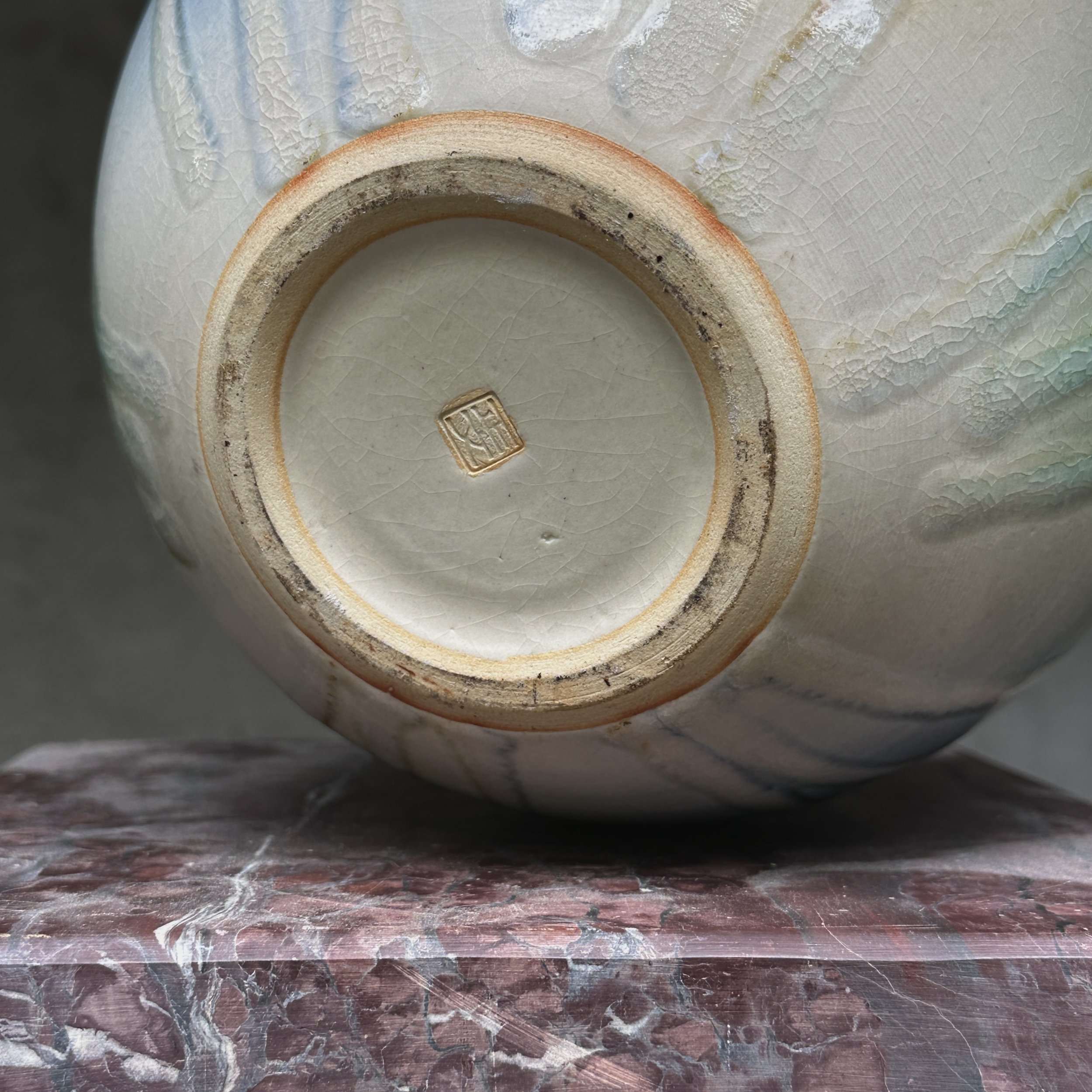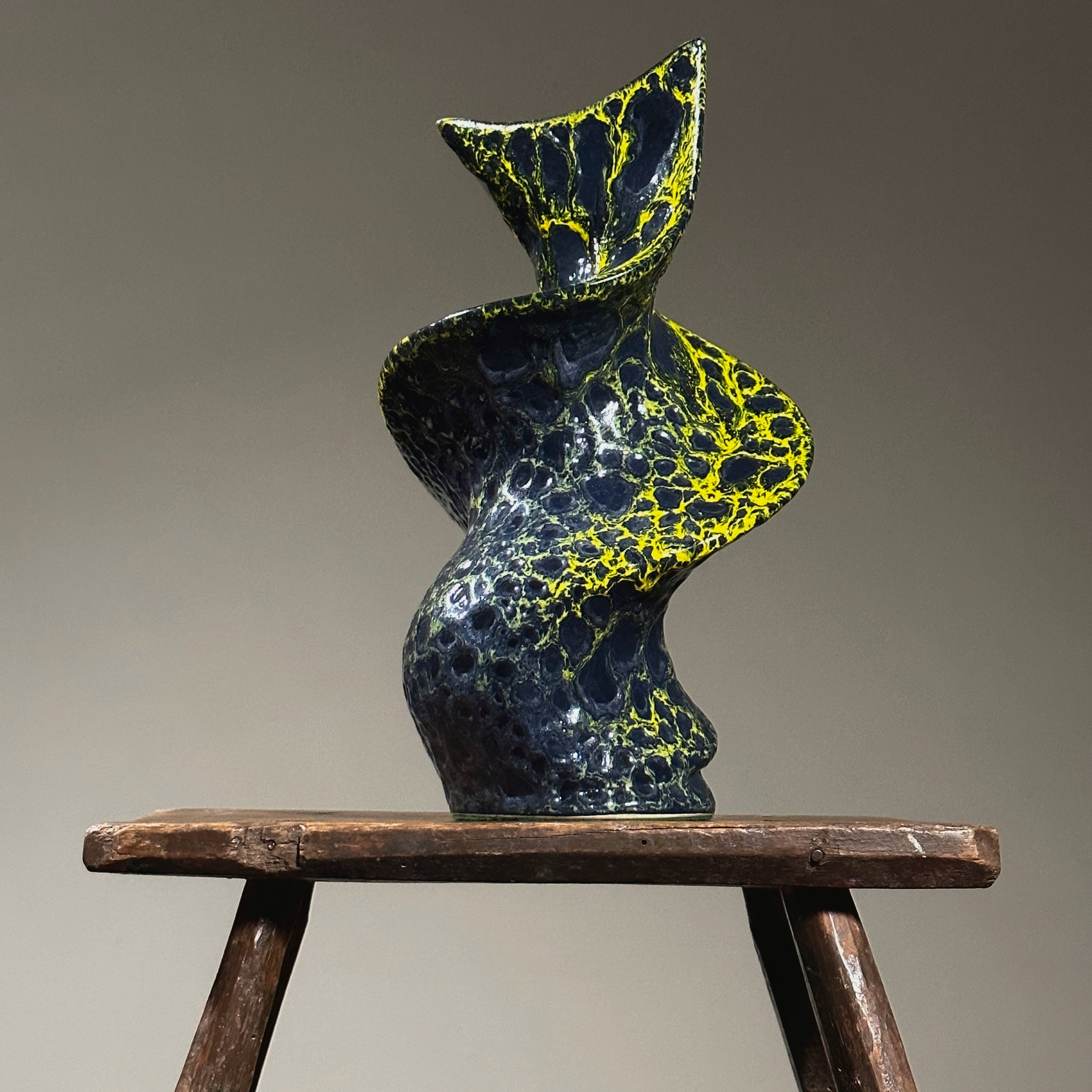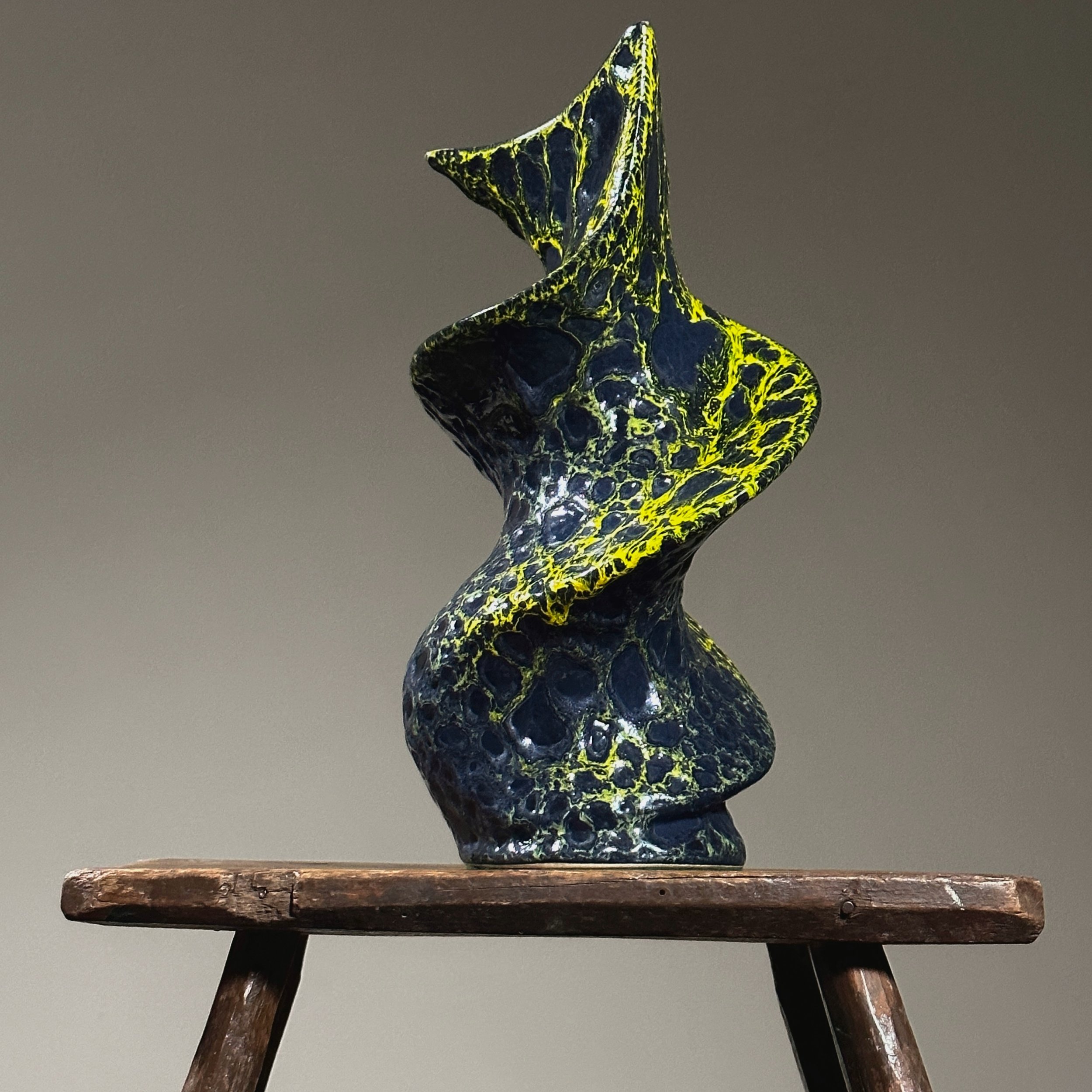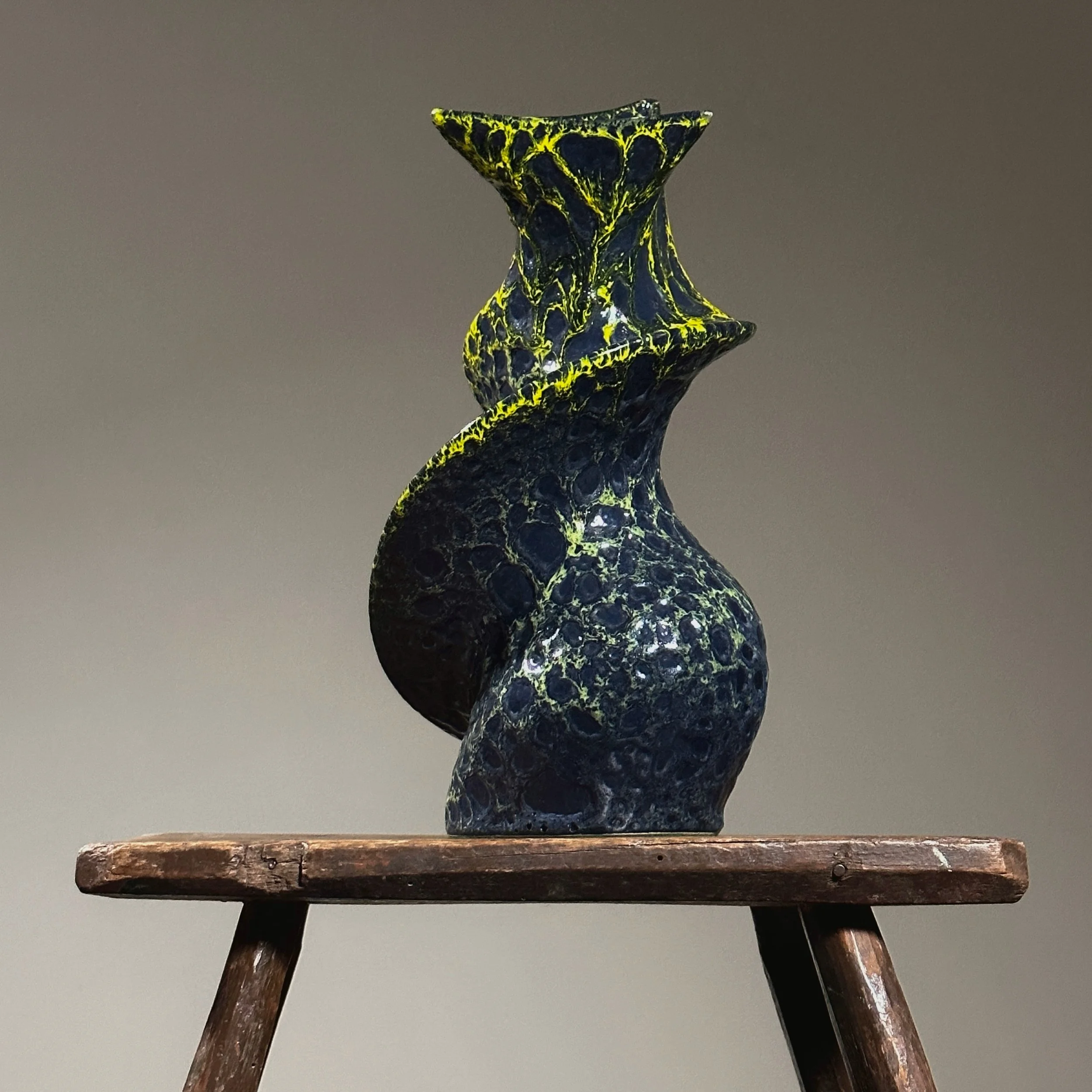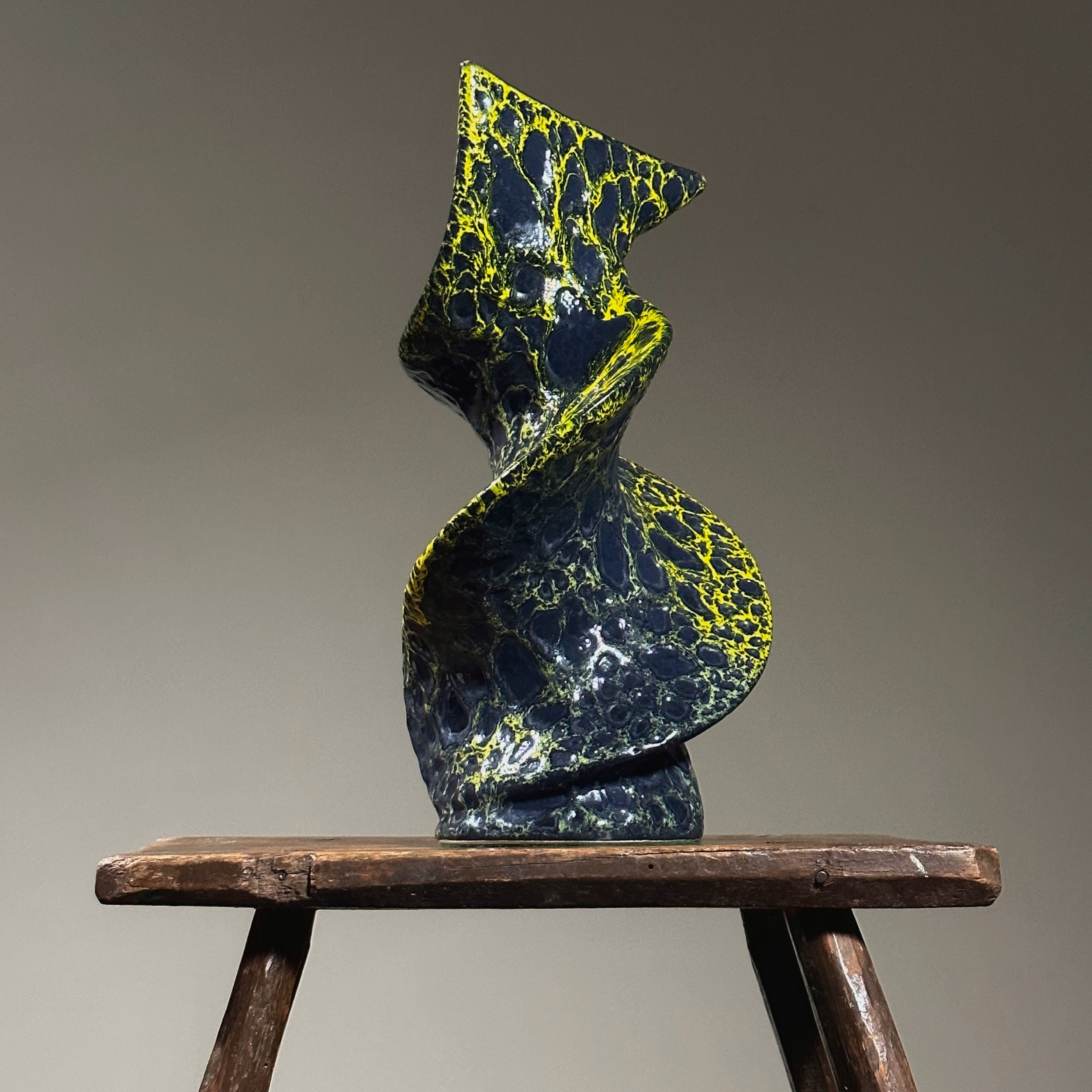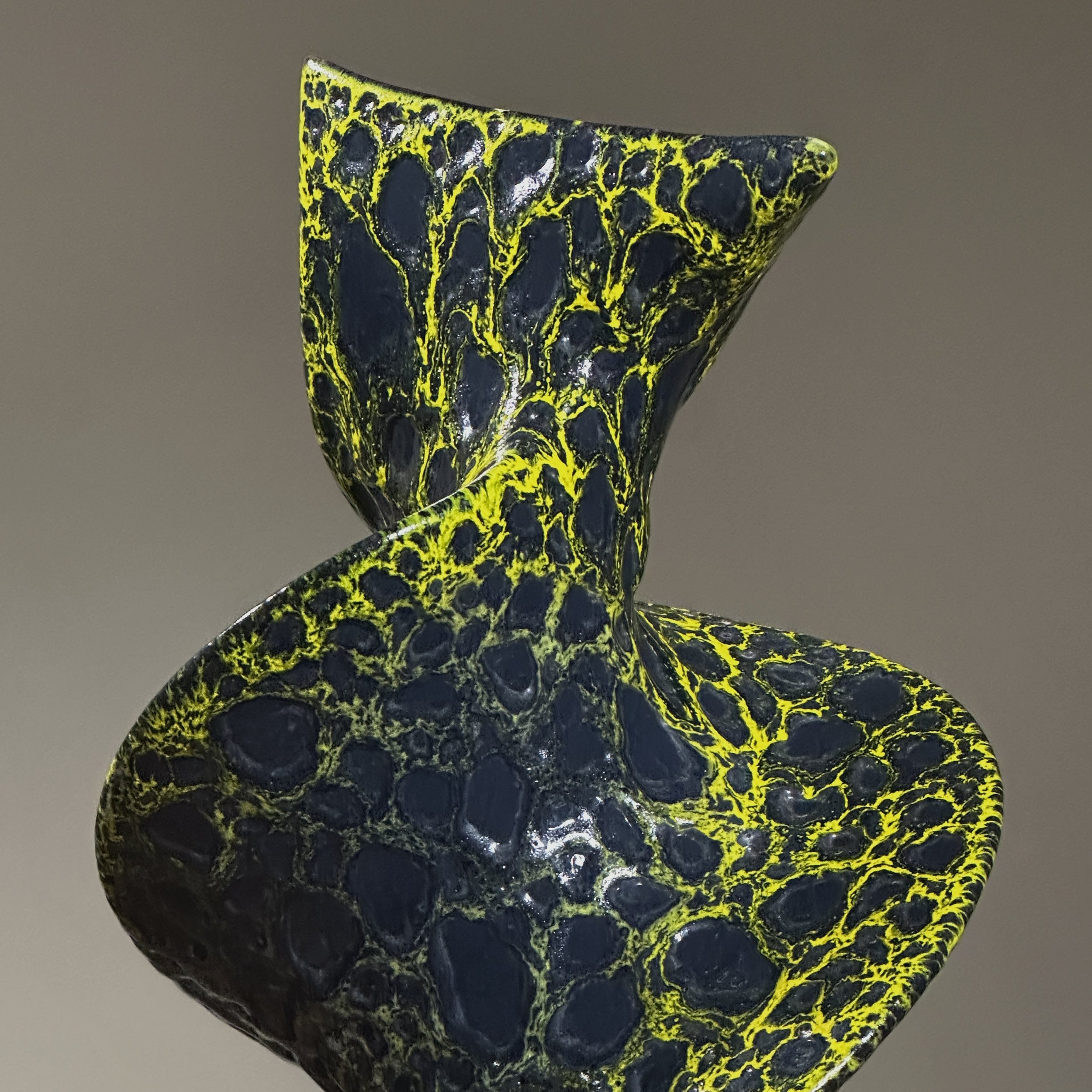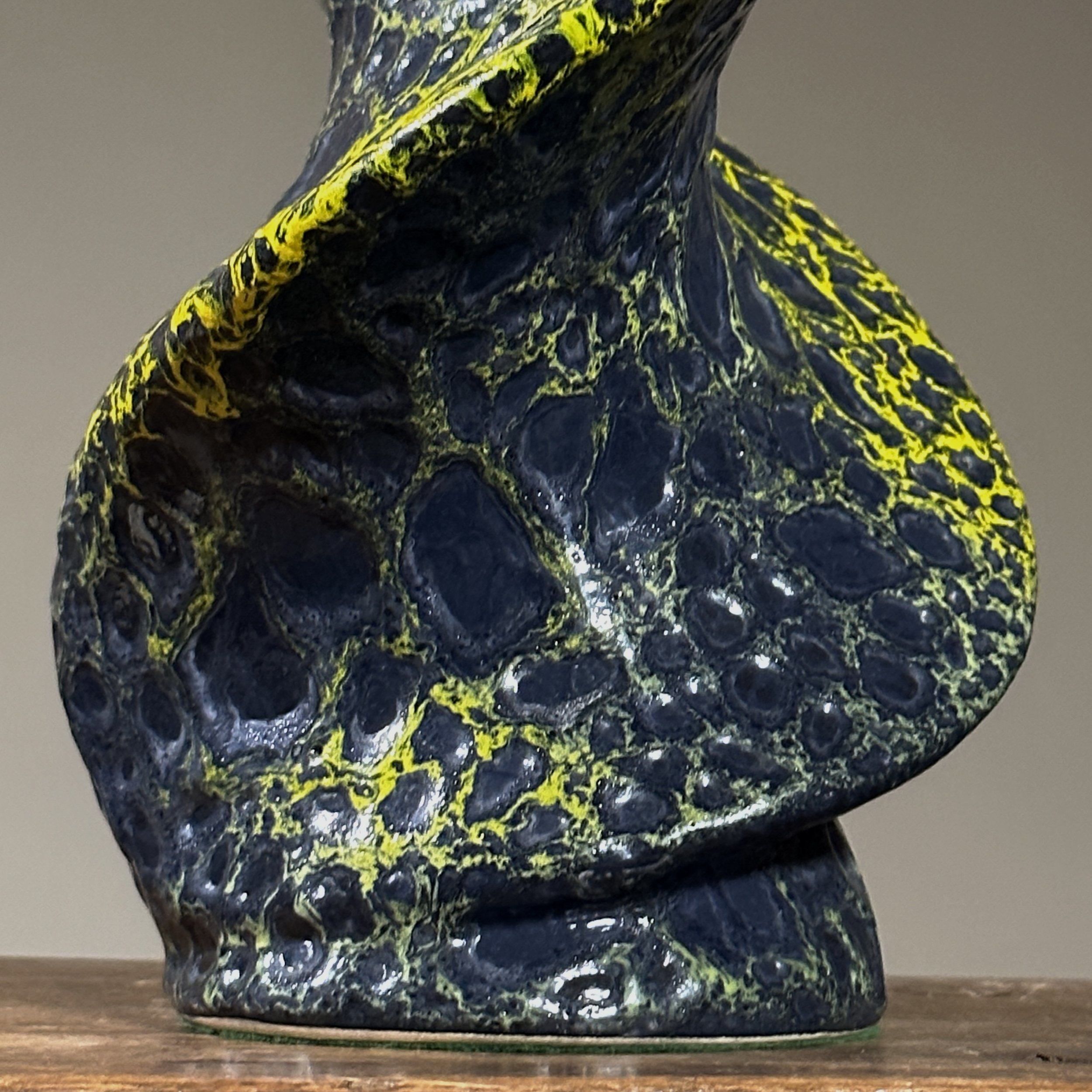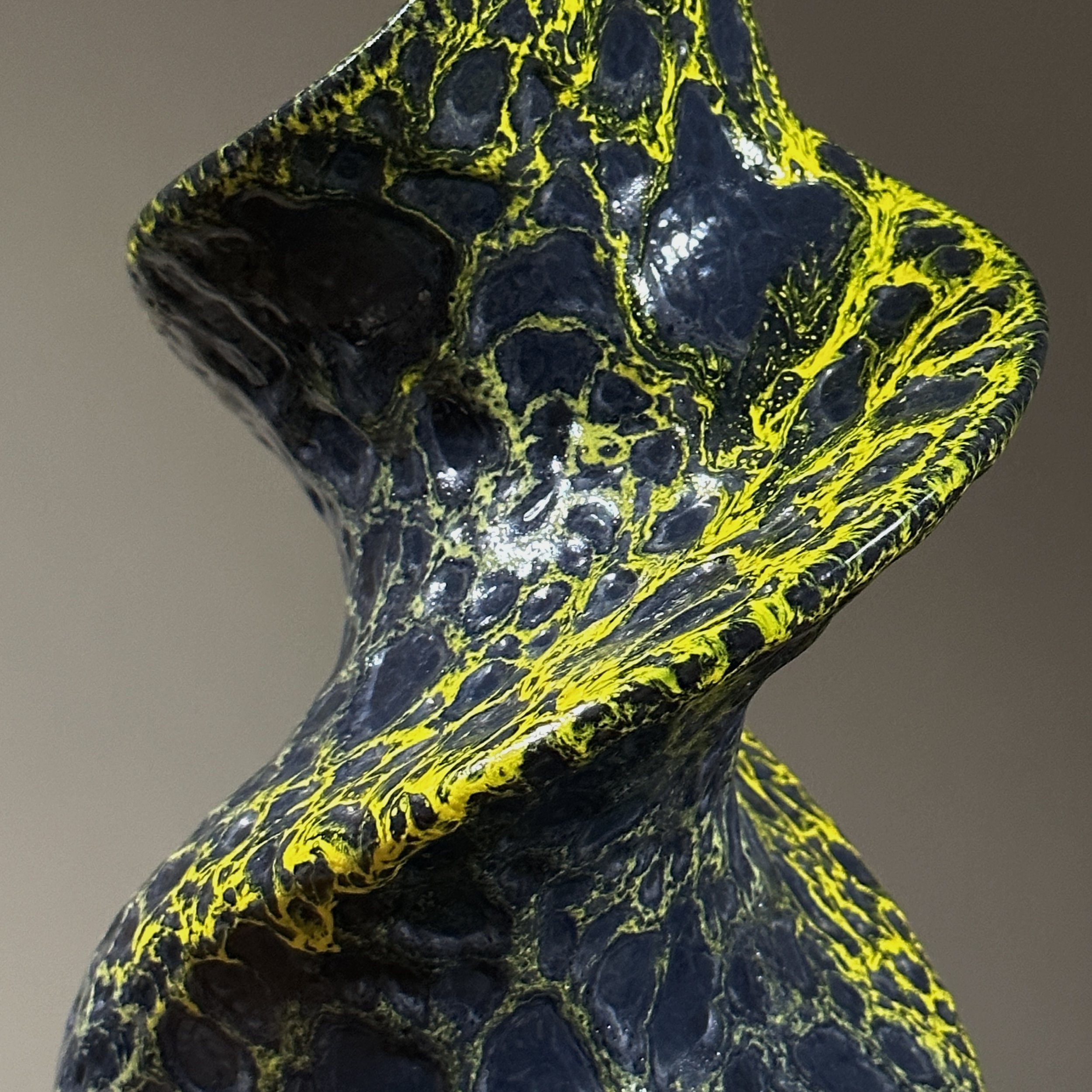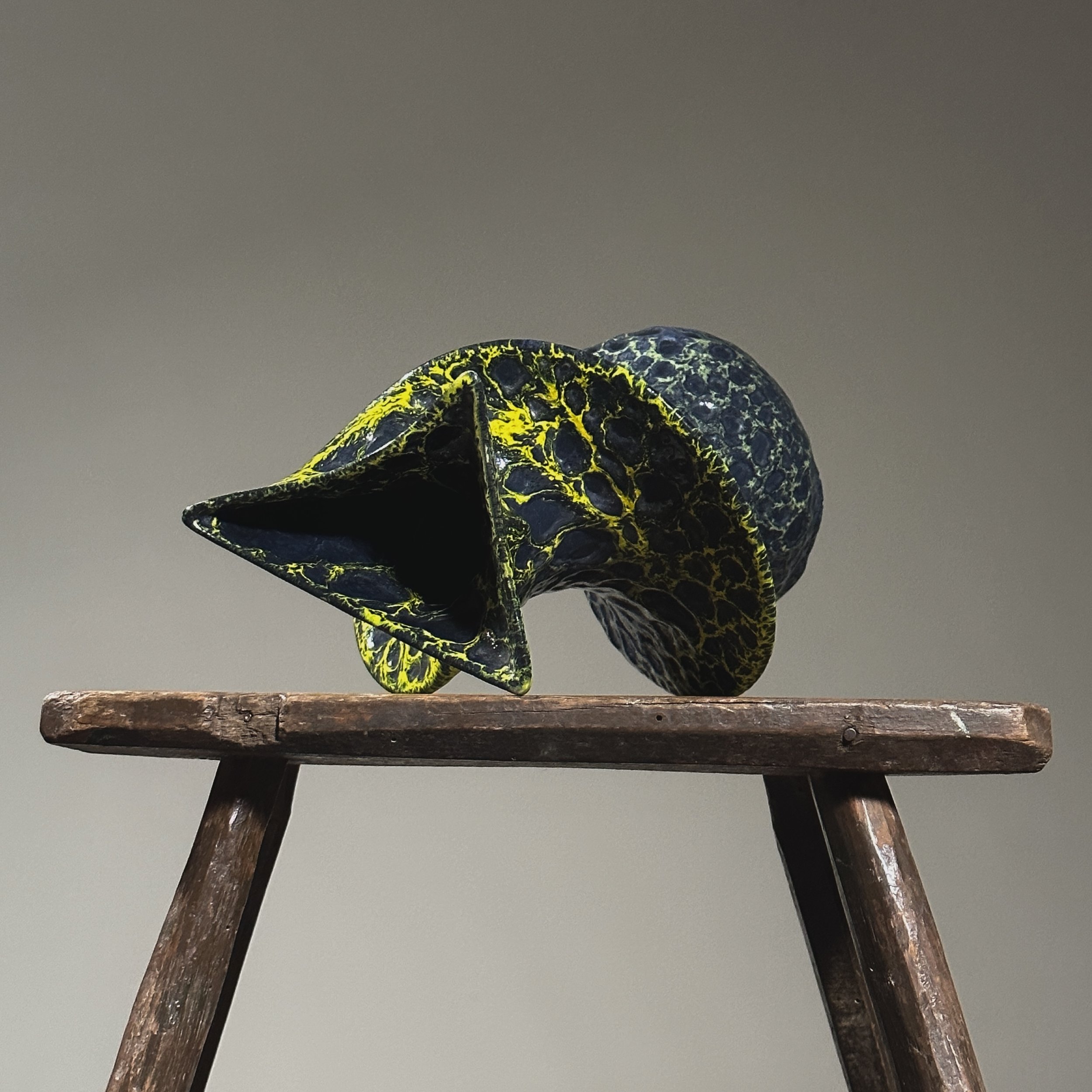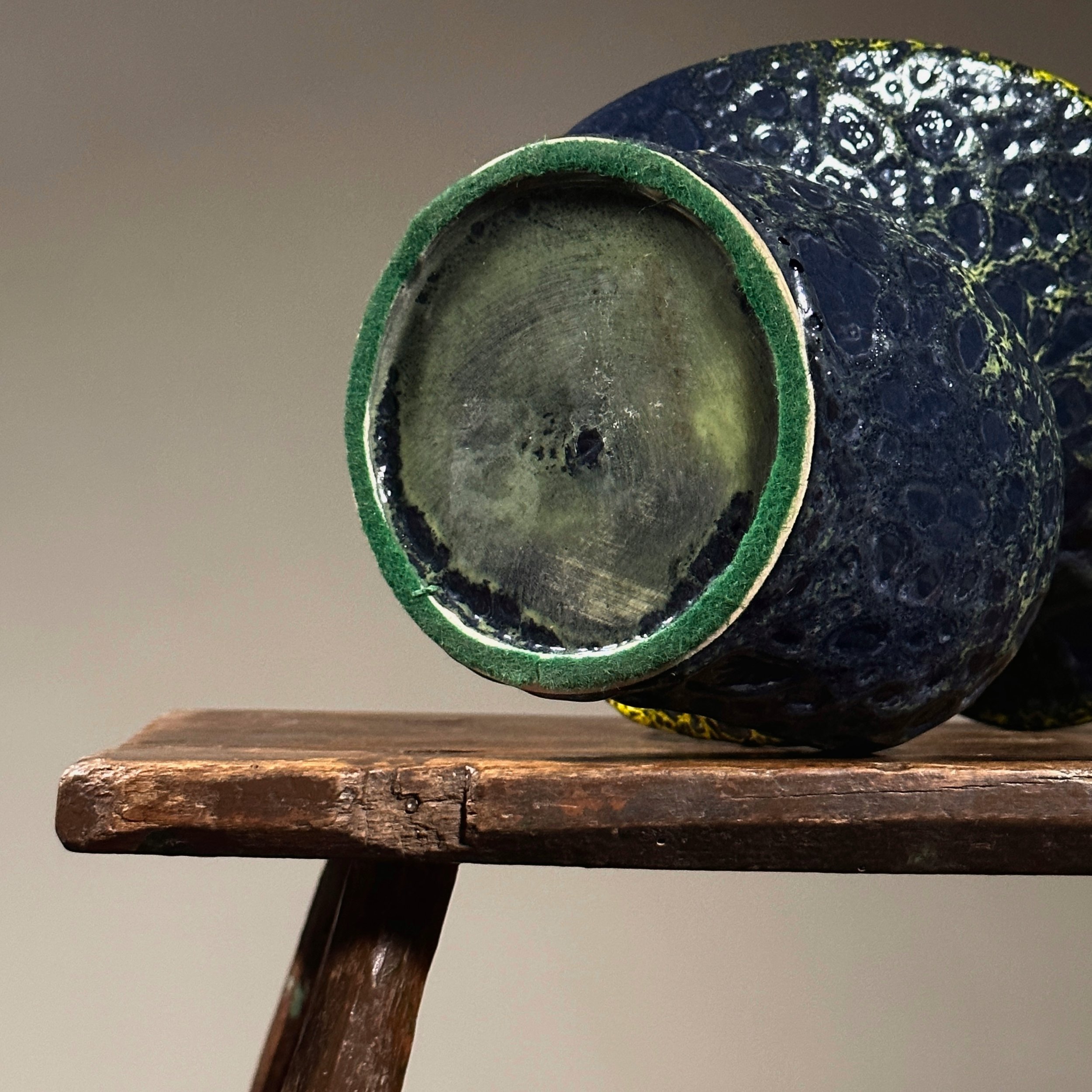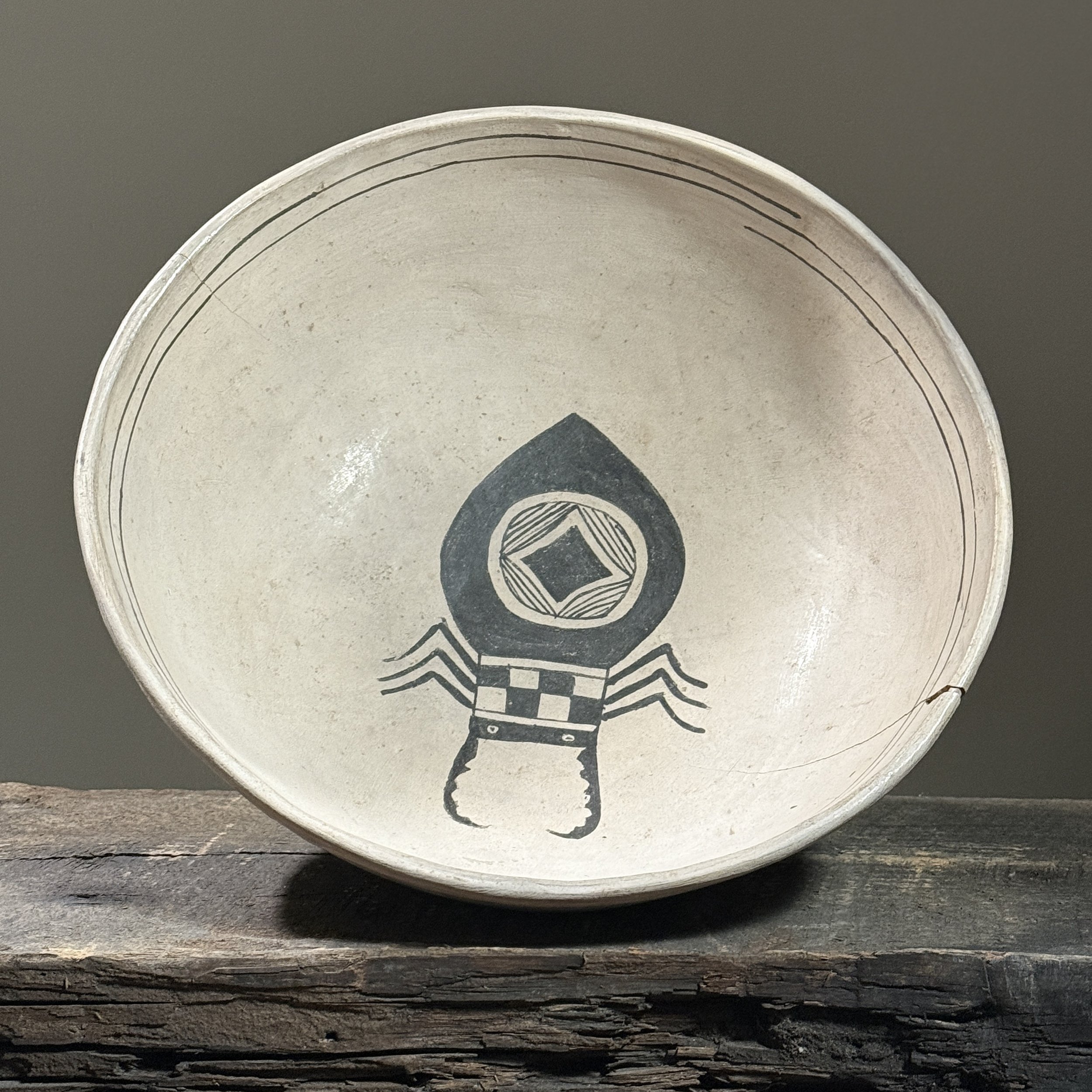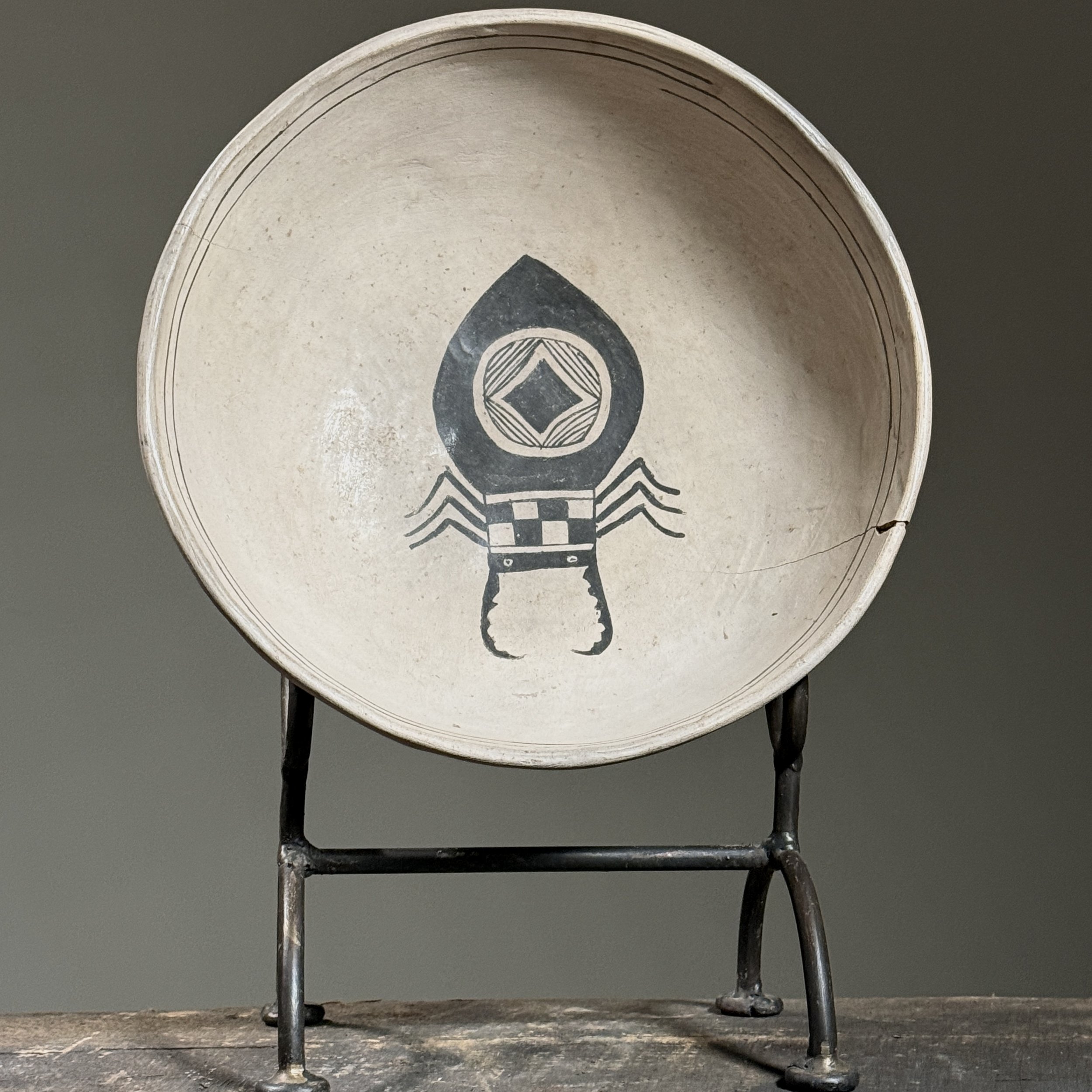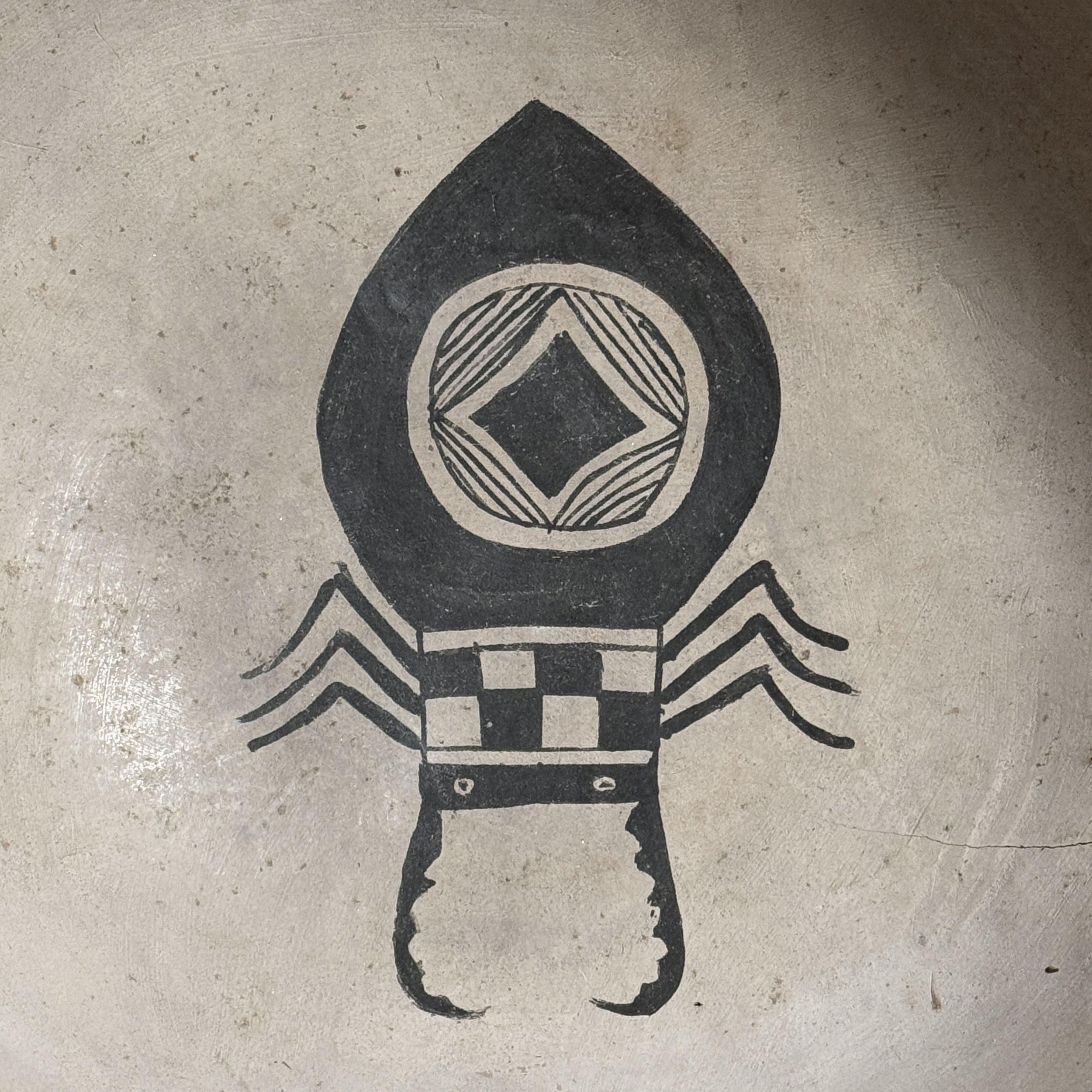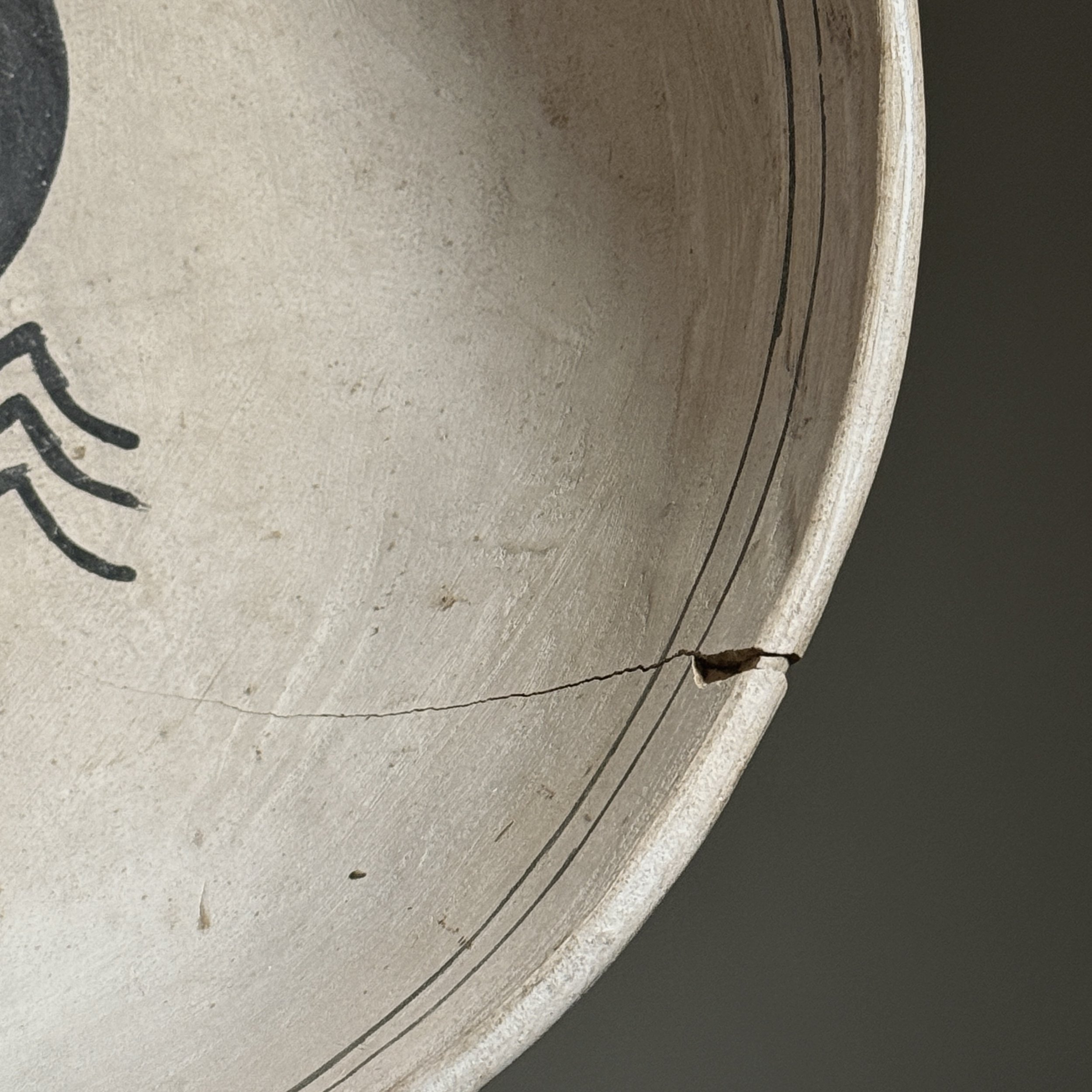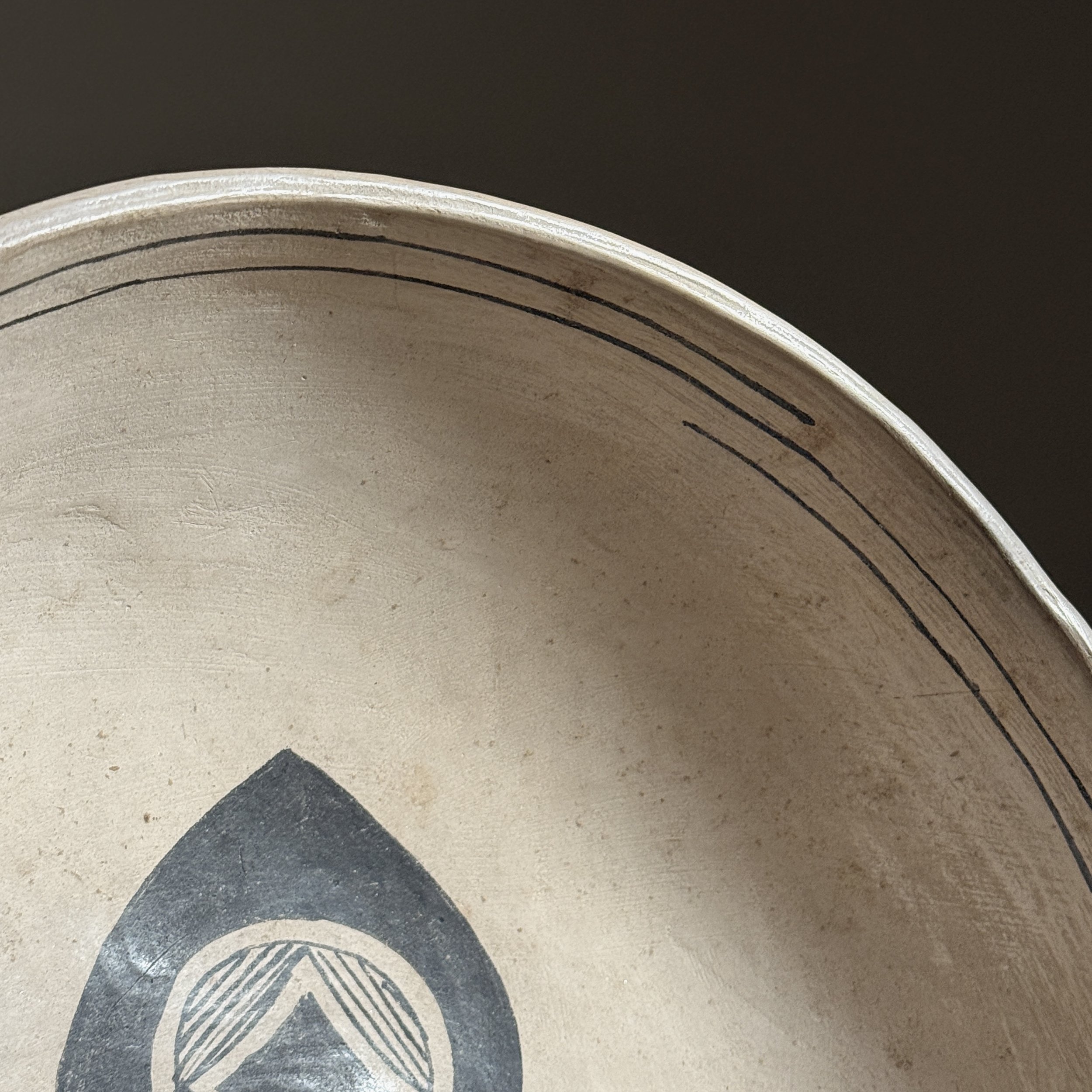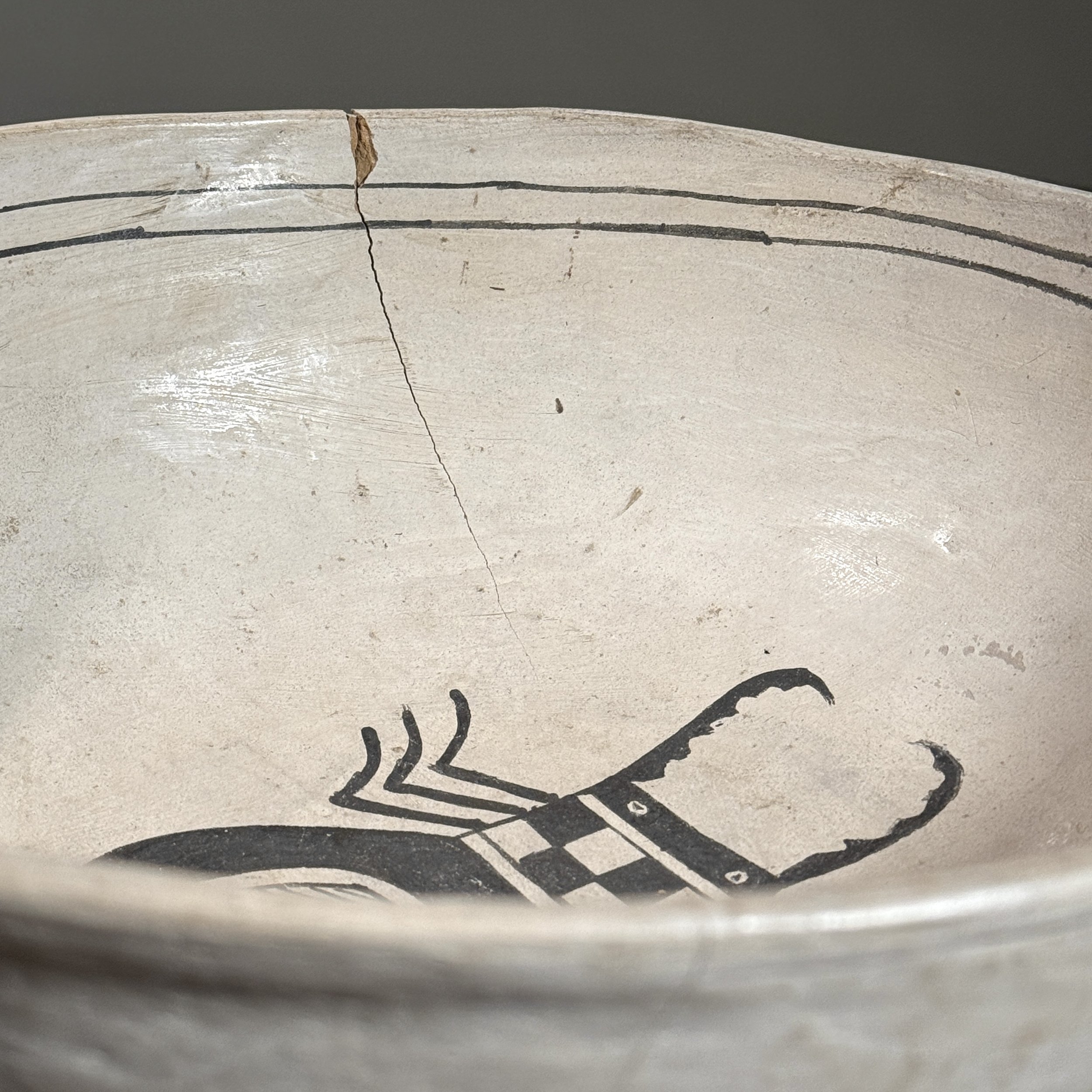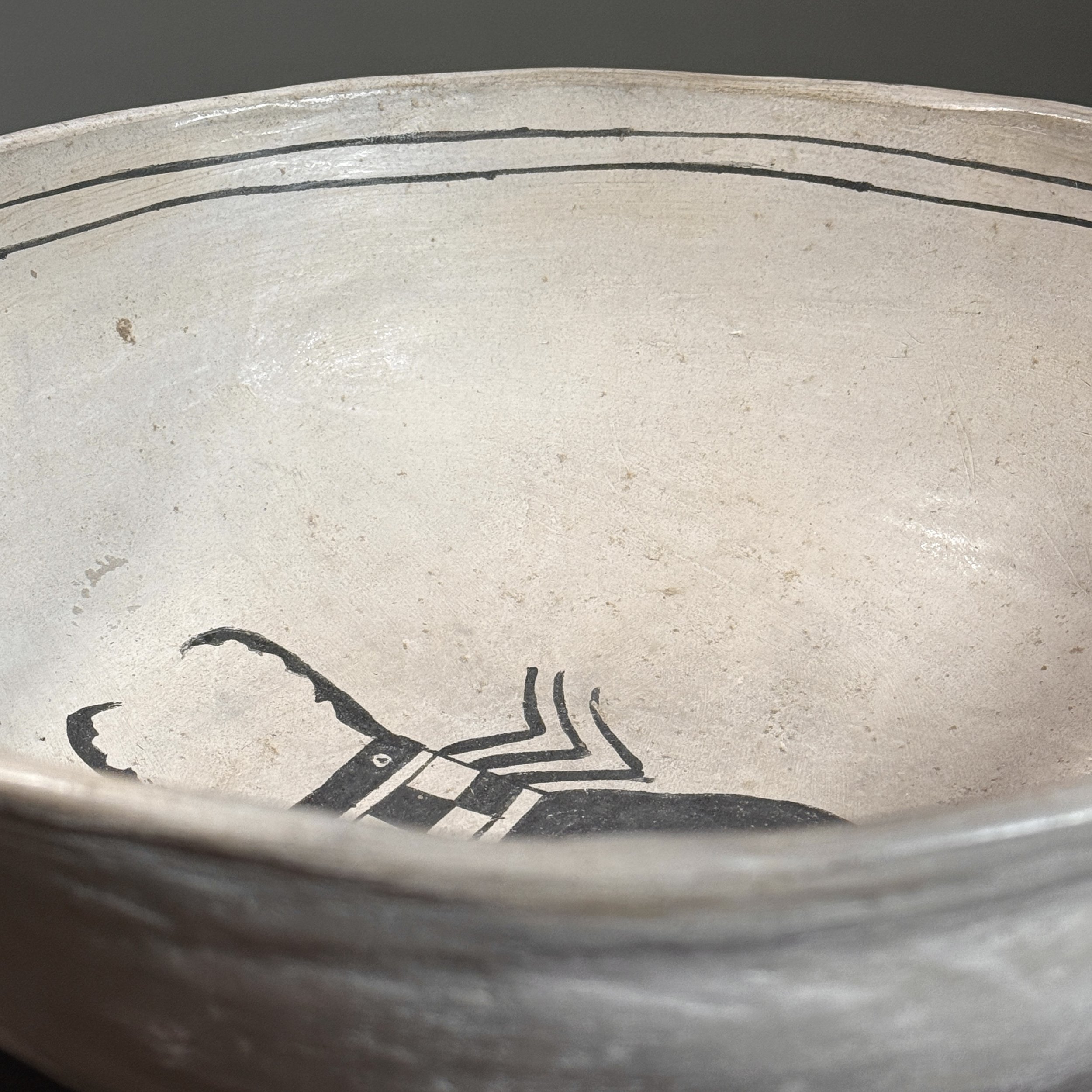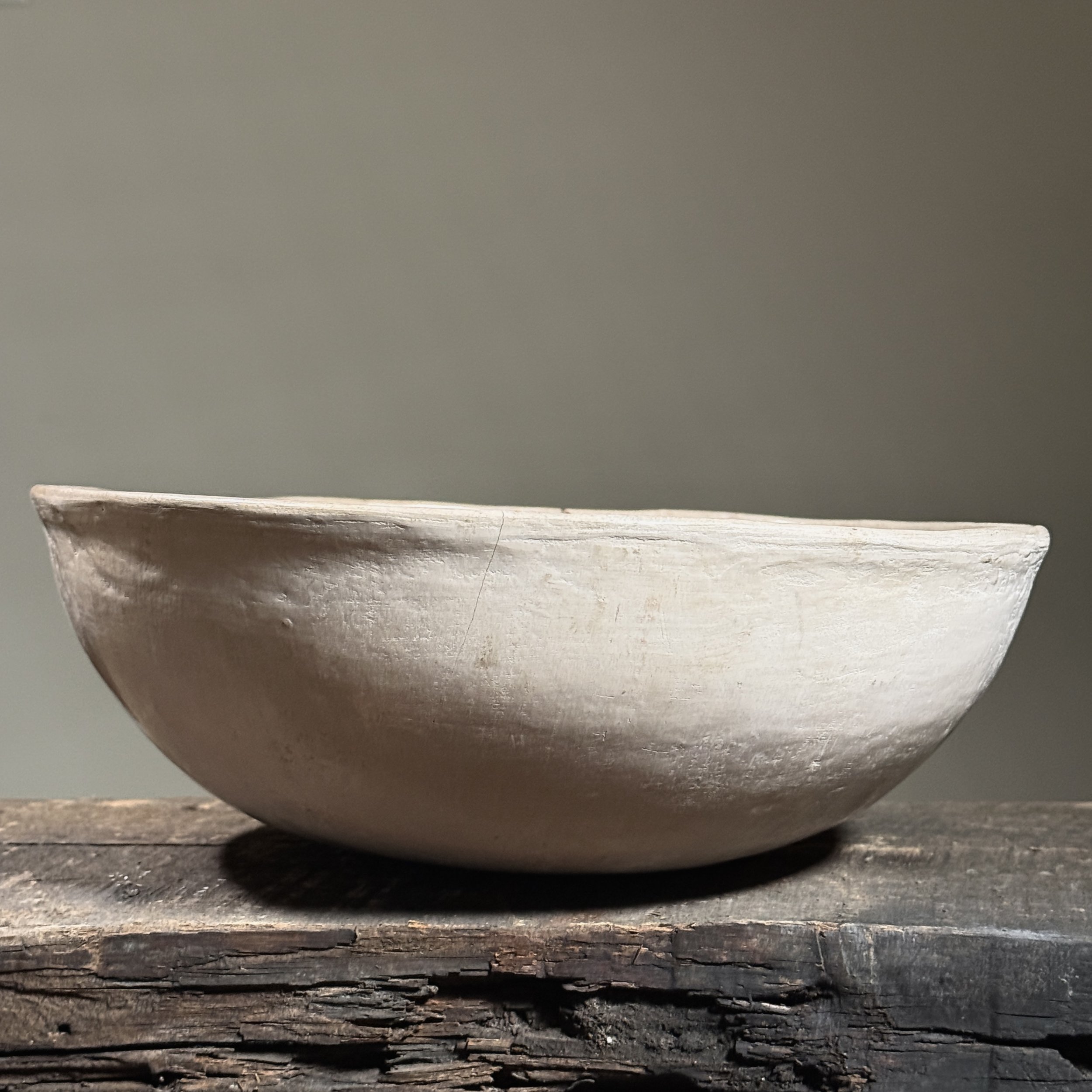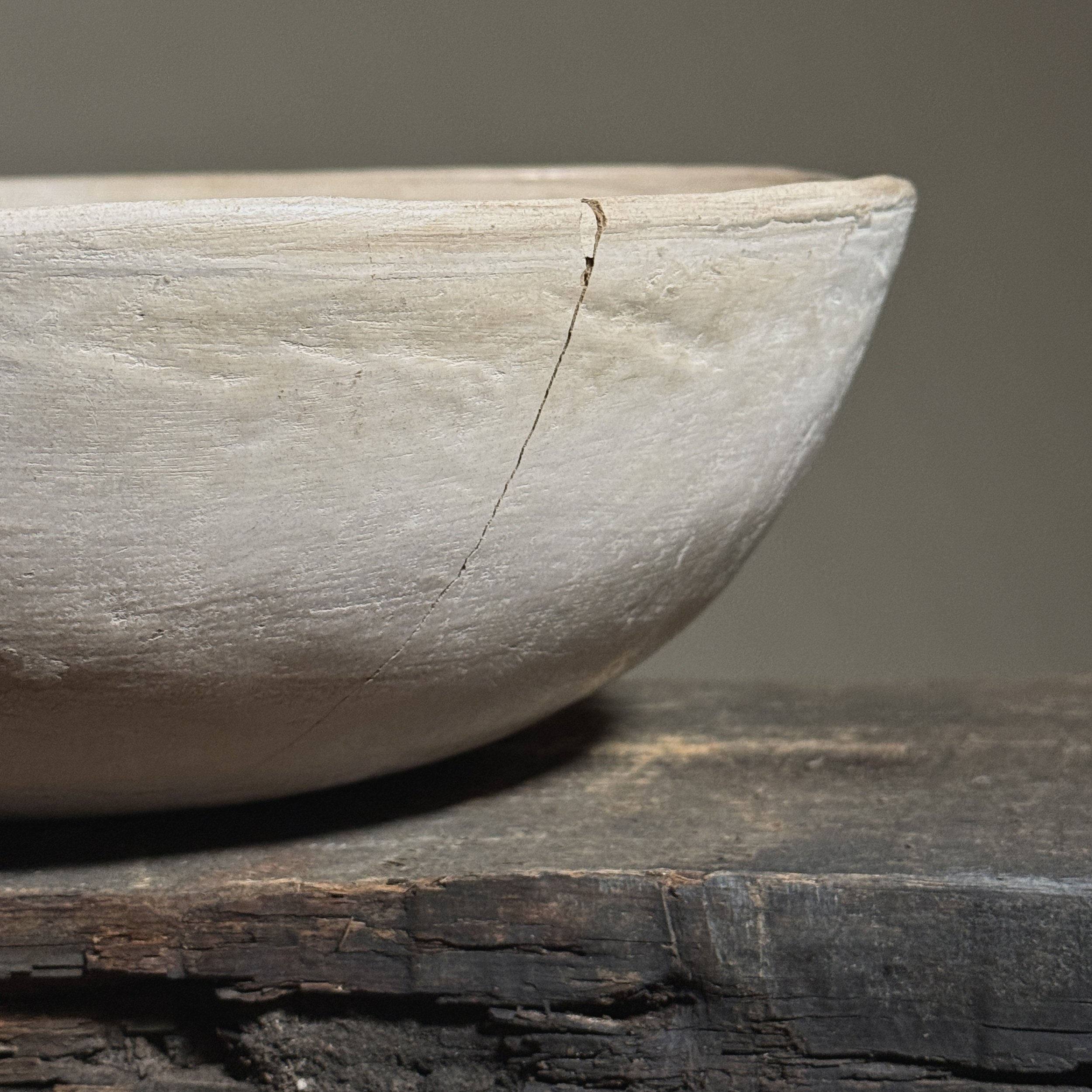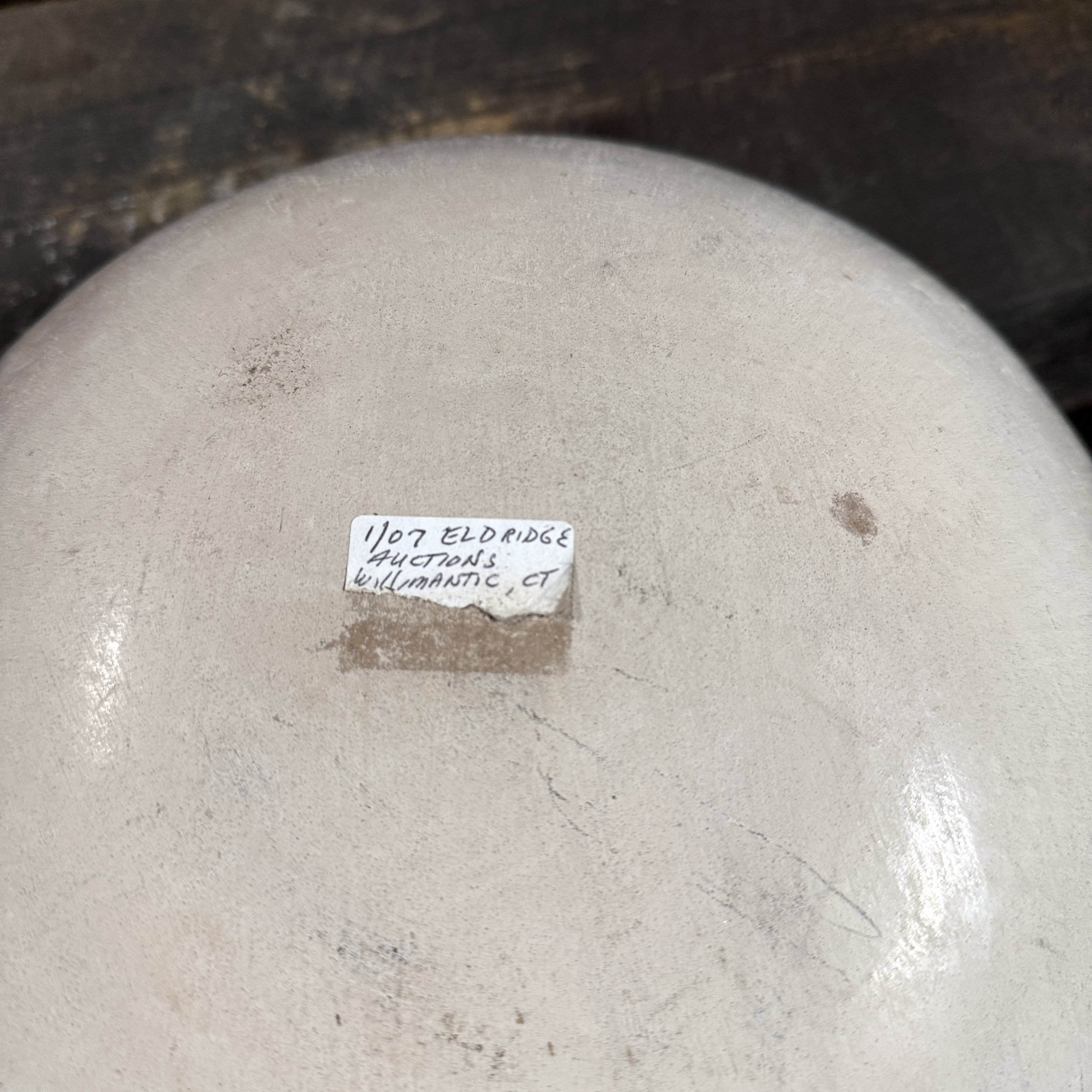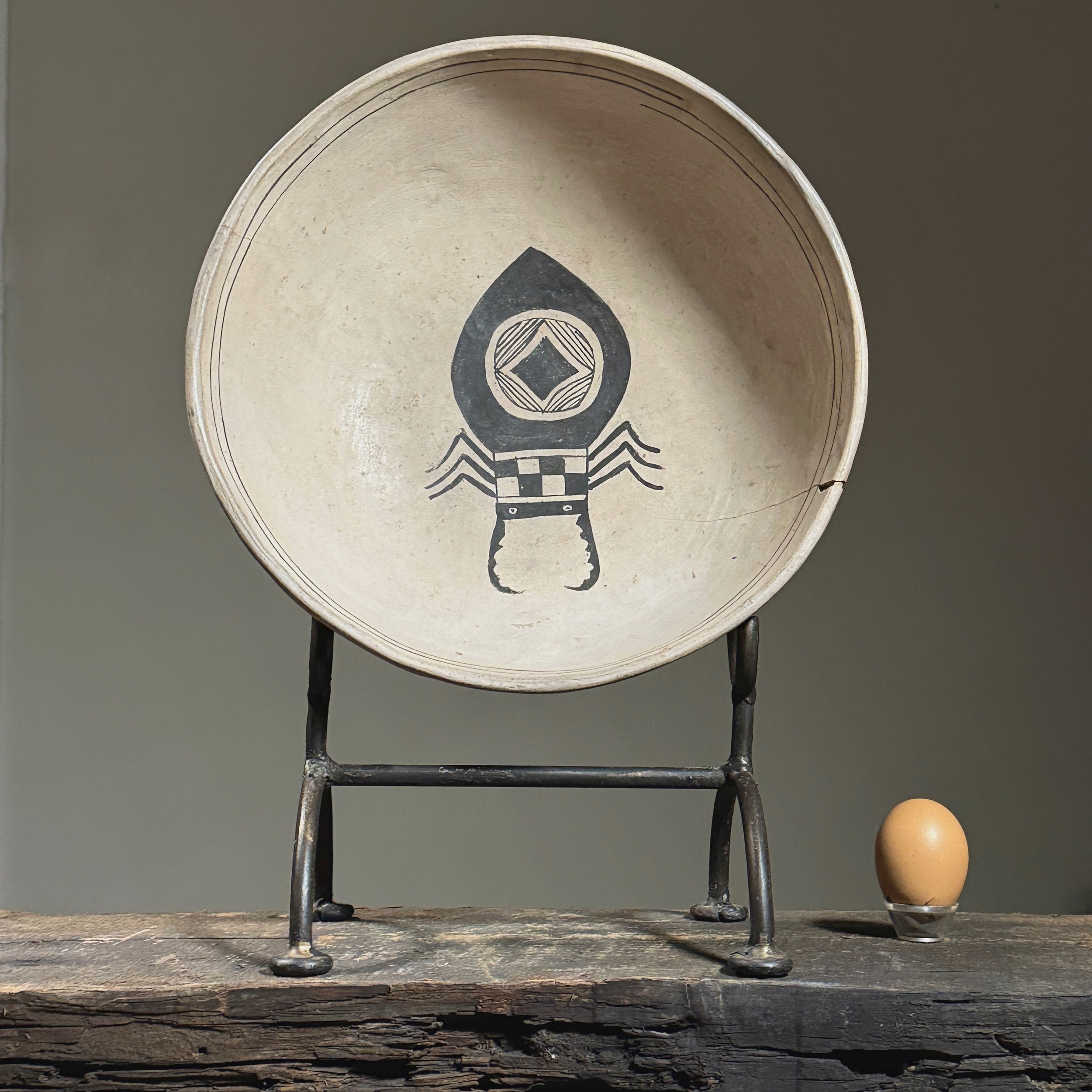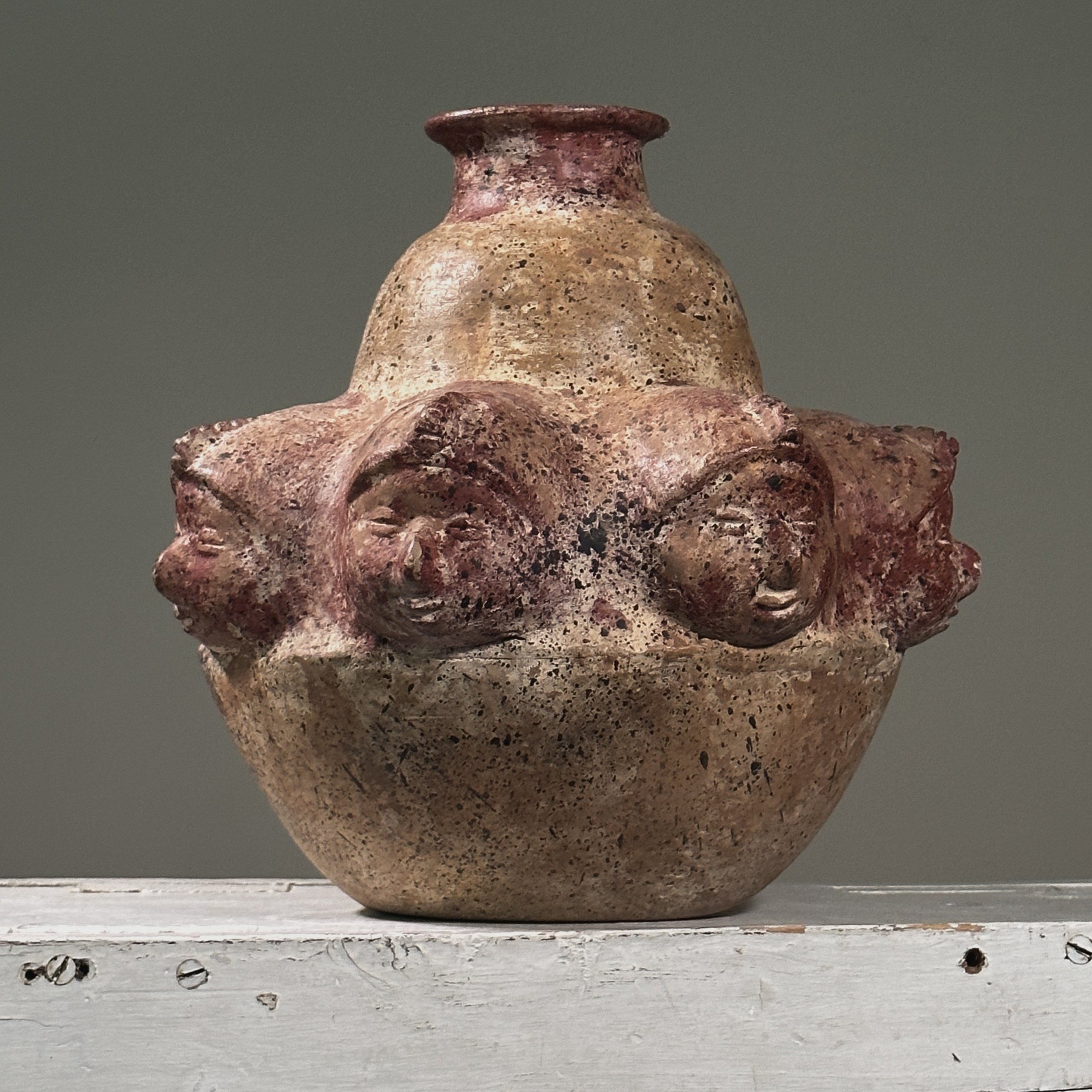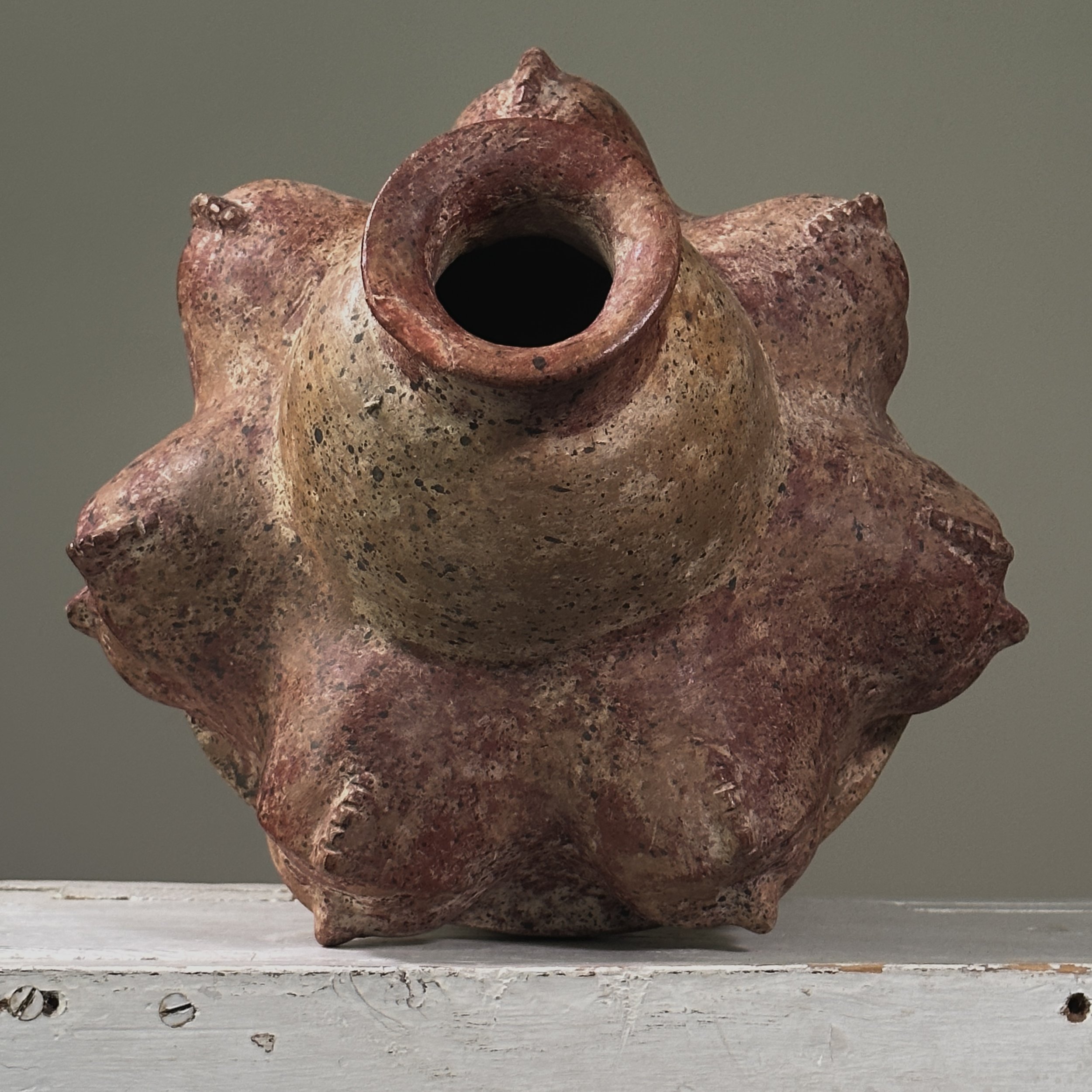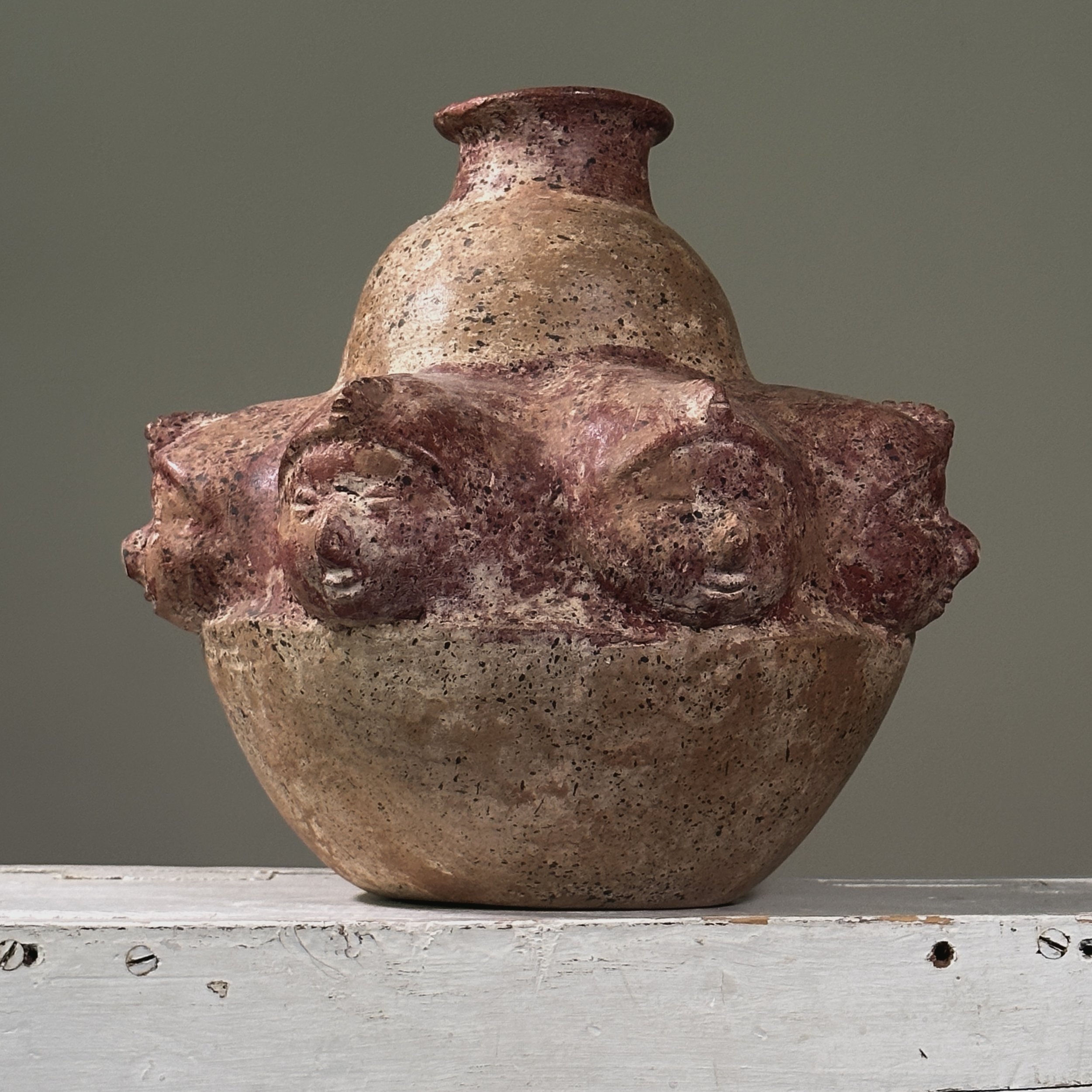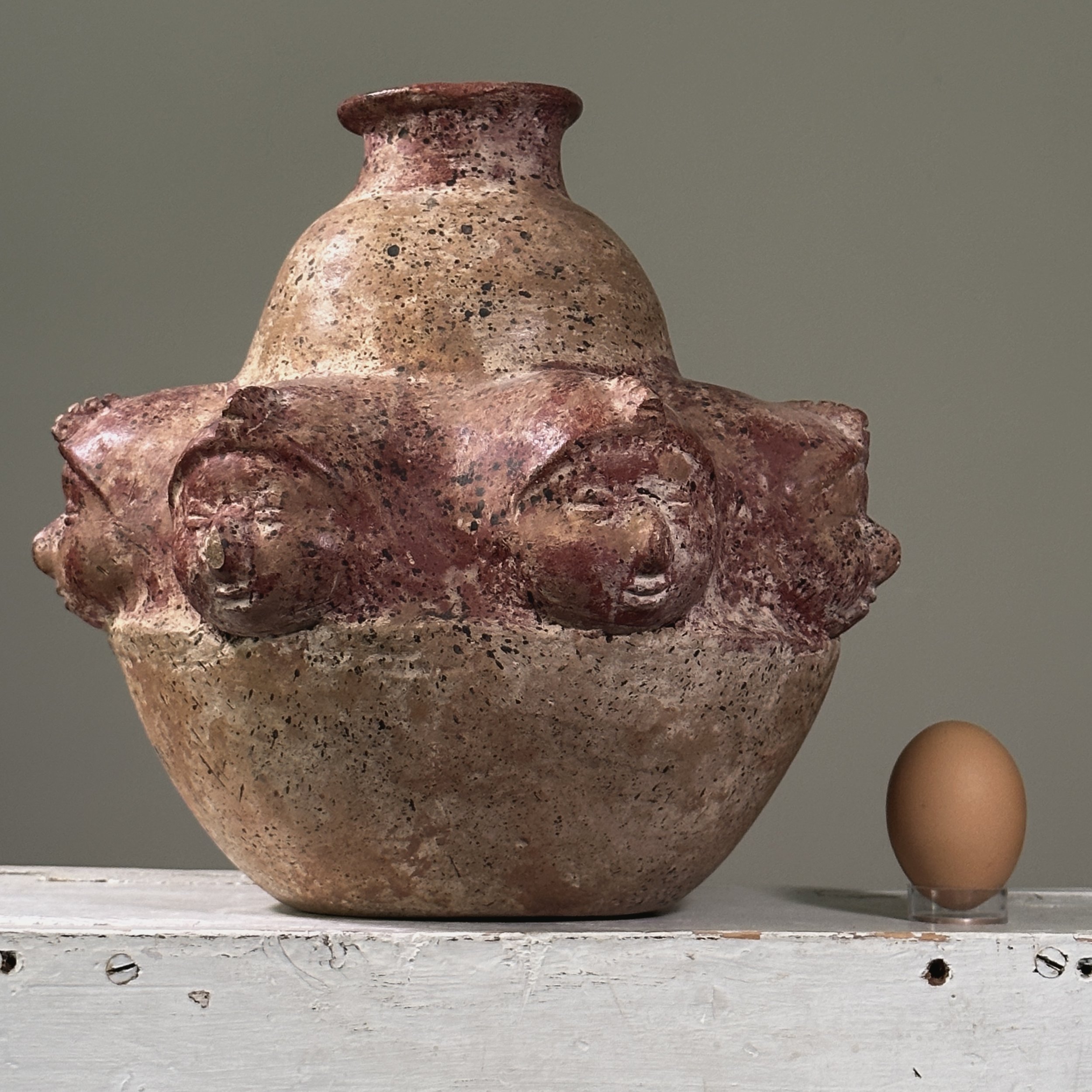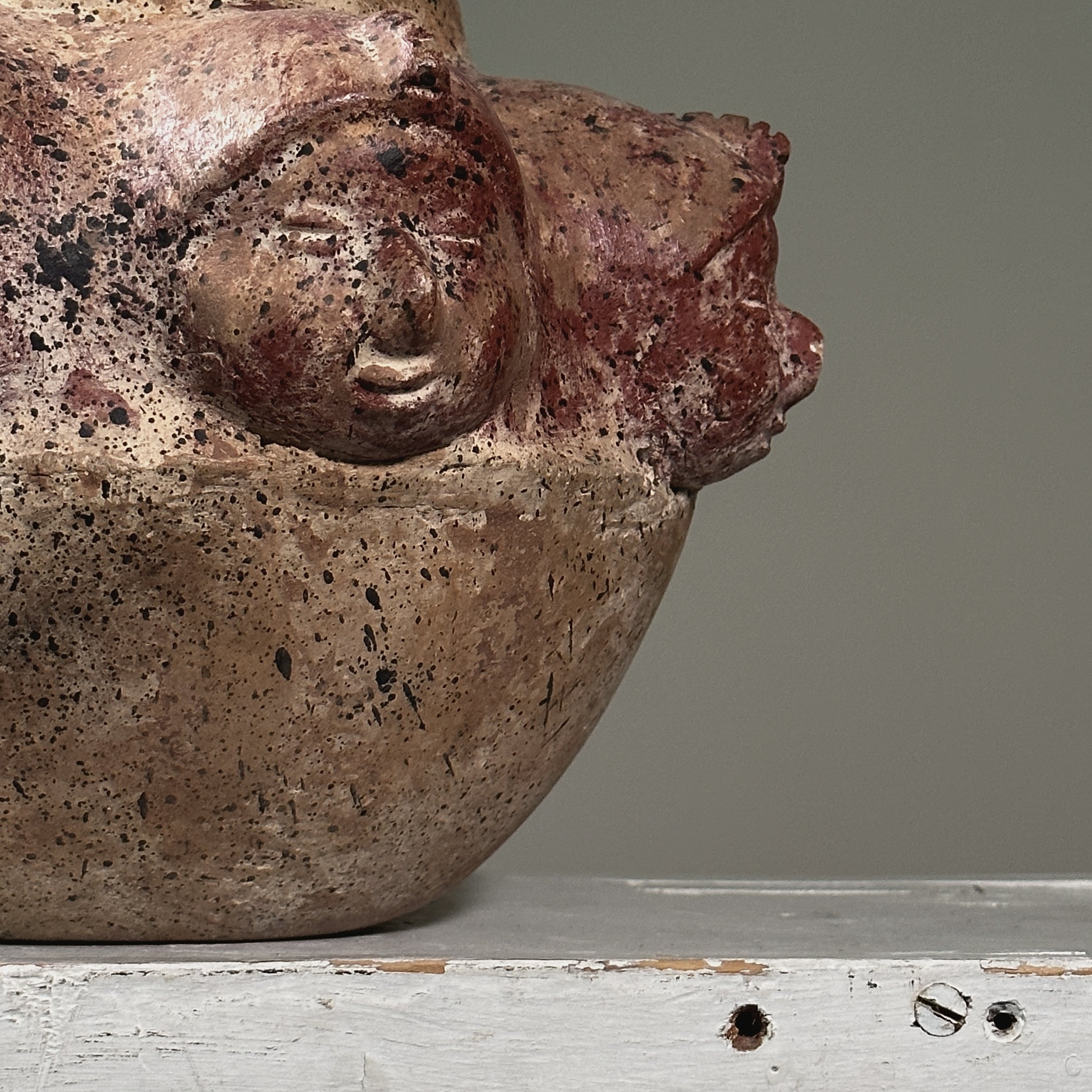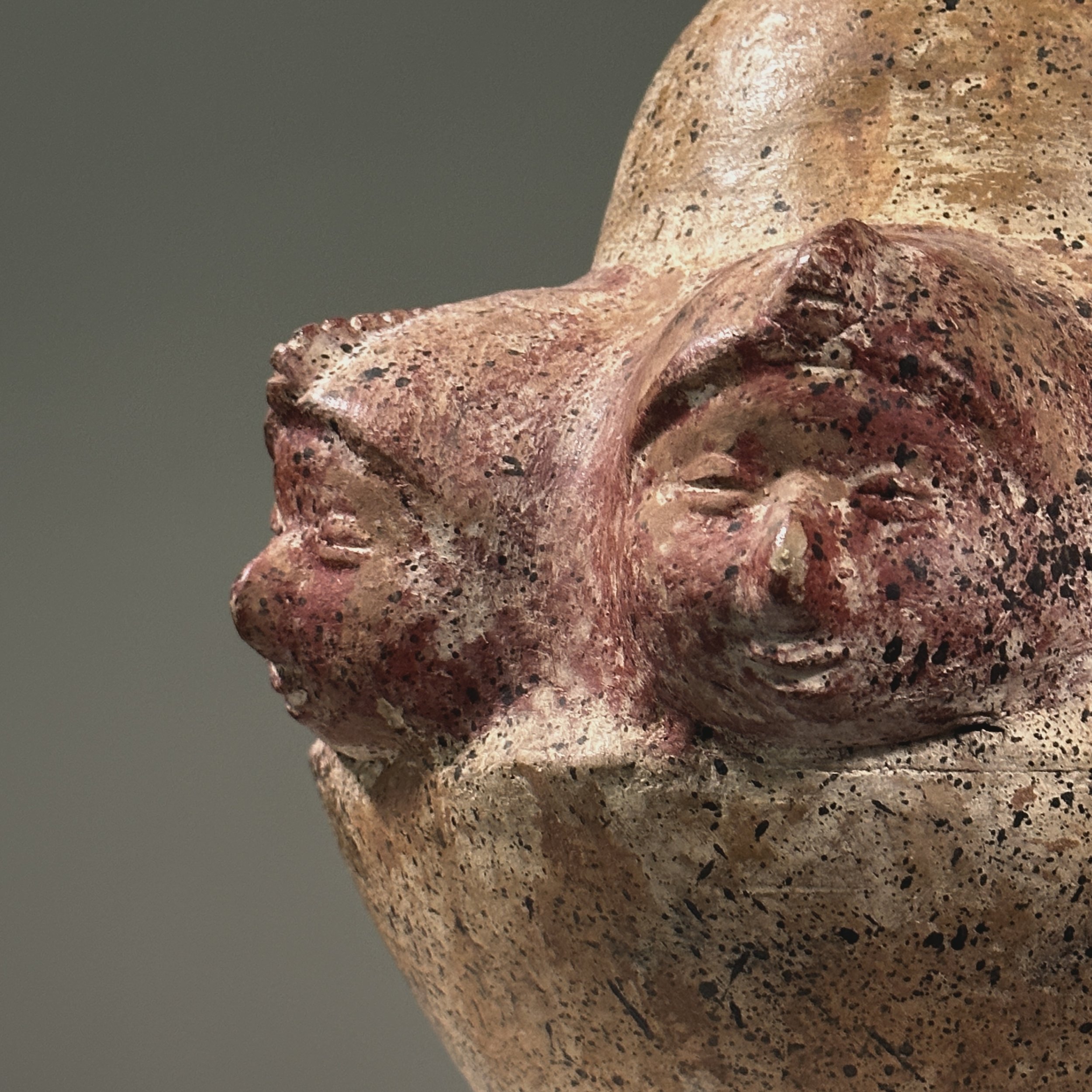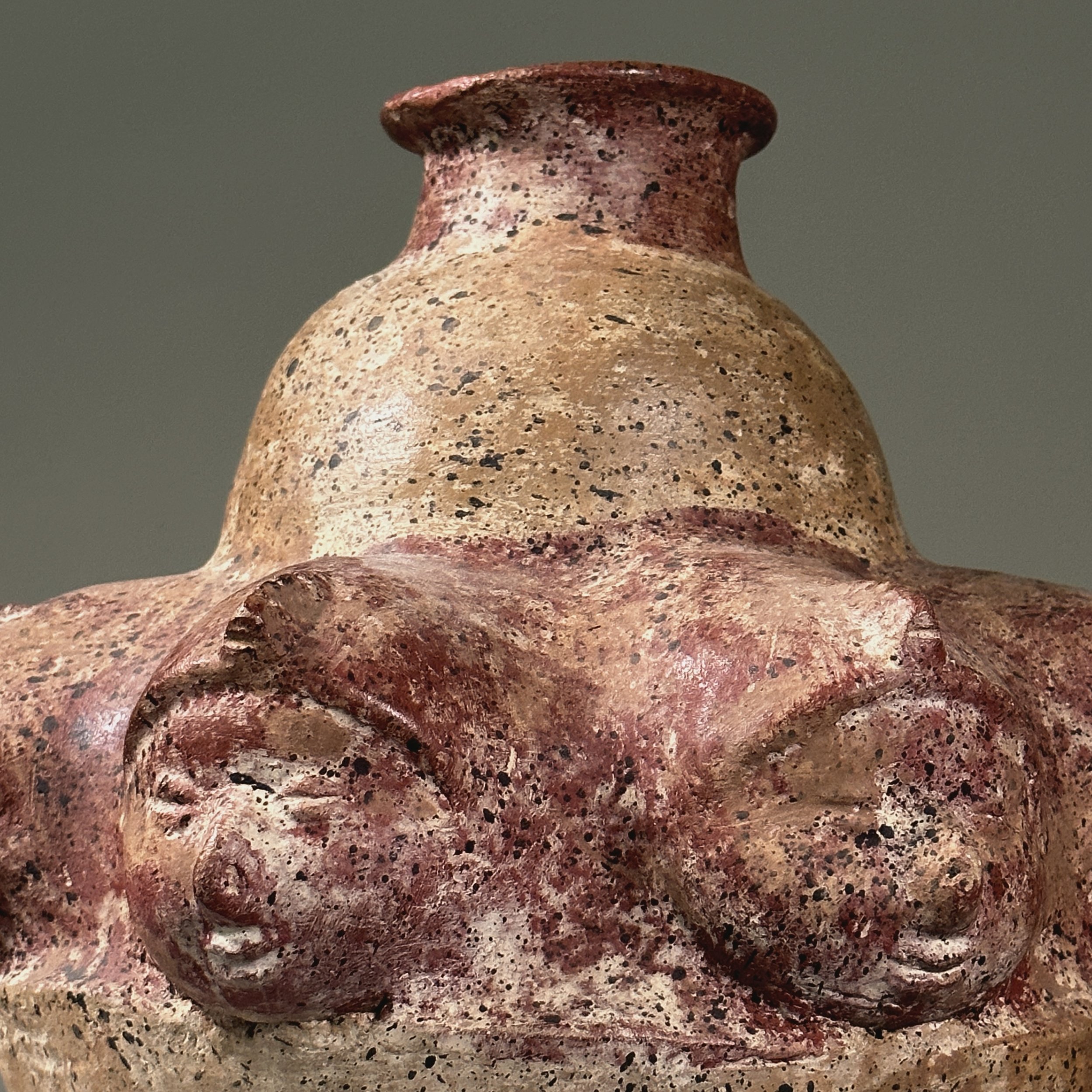 Image 1 of 9
Image 1 of 9

 Image 2 of 9
Image 2 of 9

 Image 3 of 9
Image 3 of 9

 Image 4 of 9
Image 4 of 9

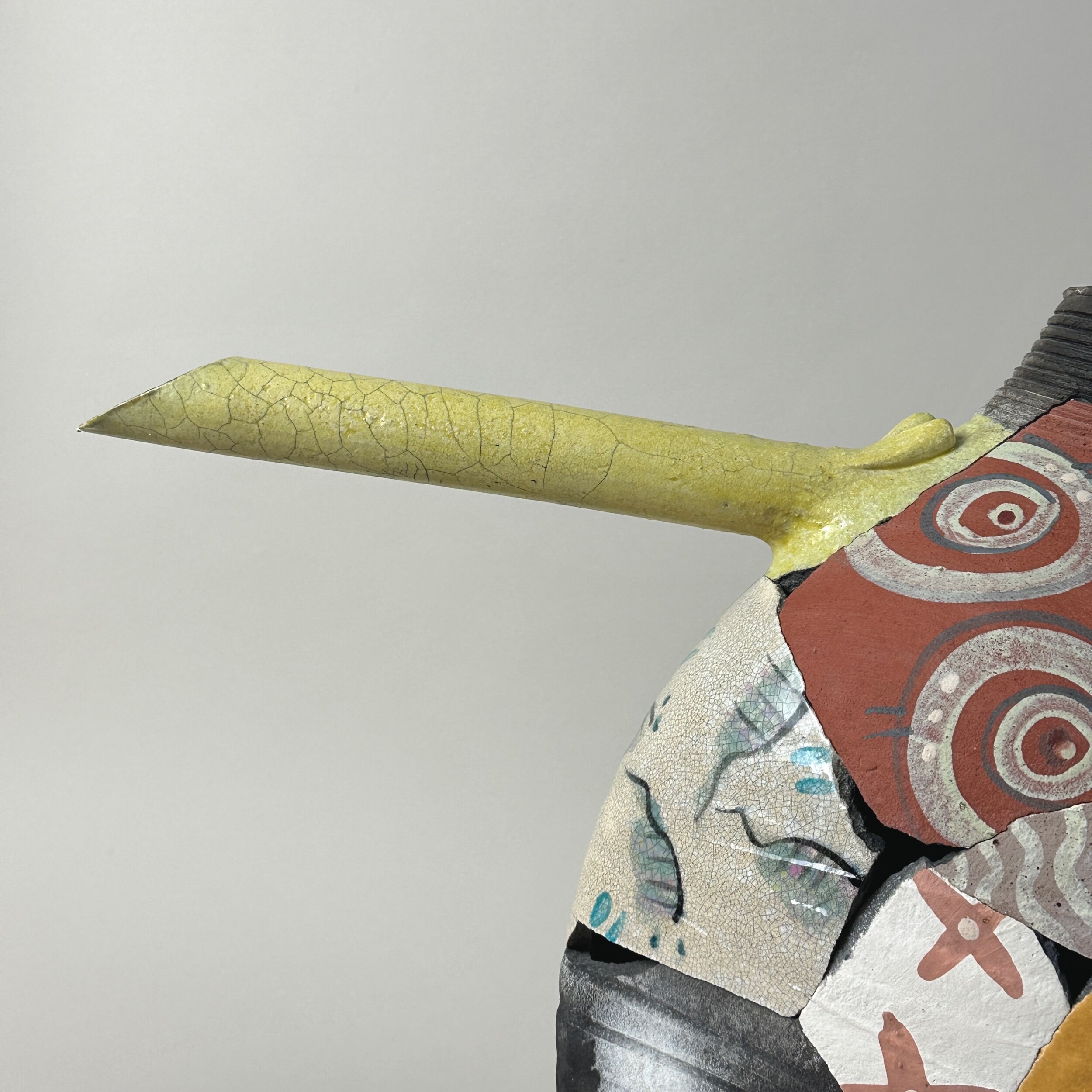 Image 5 of 9
Image 5 of 9

 Image 6 of 9
Image 6 of 9

 Image 7 of 9
Image 7 of 9

 Image 8 of 9
Image 8 of 9

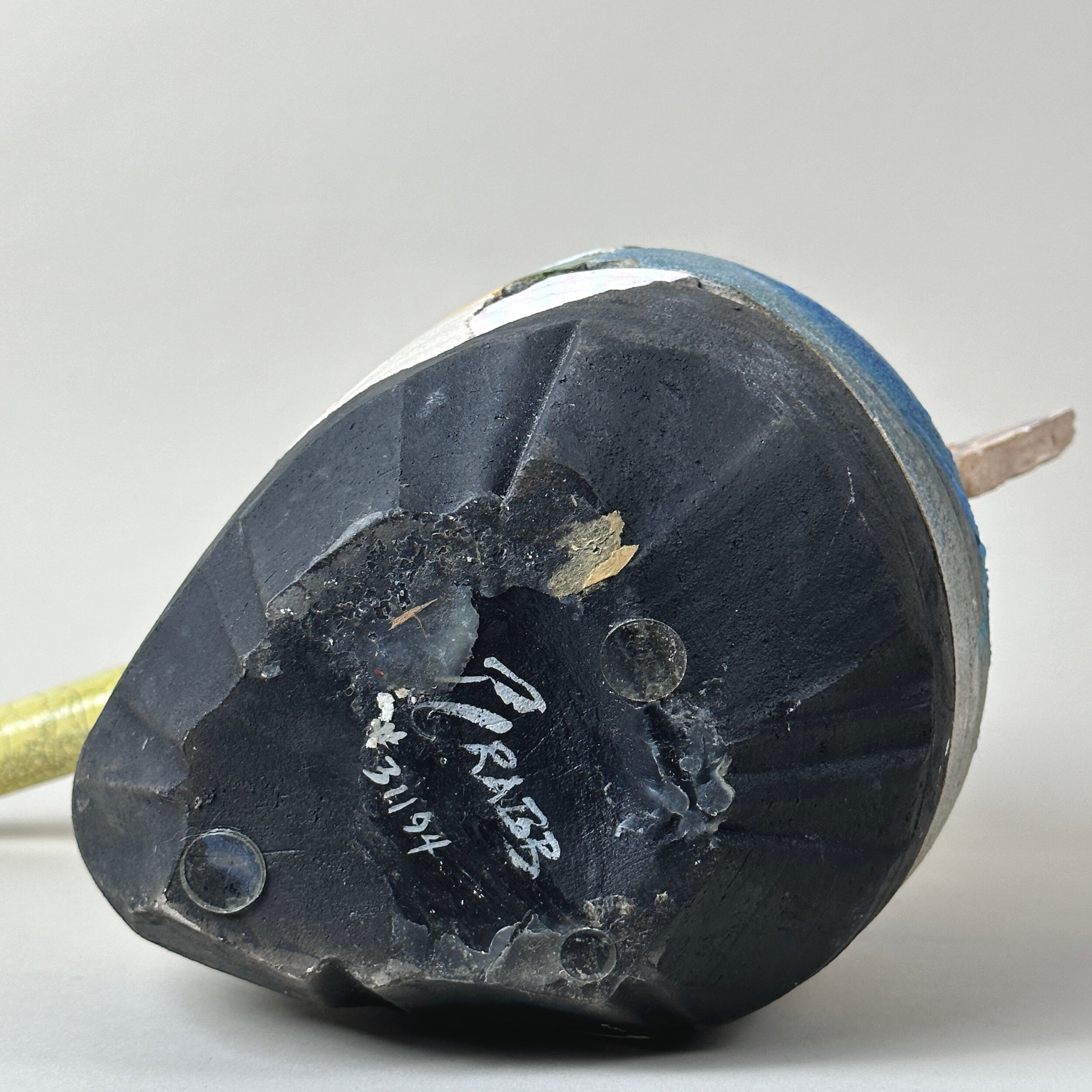 Image 9 of 9
Image 9 of 9










Patrick Crabb (b. 1947) - Postmodernist Raku Shard Teapot Series, Signed (1994)
Patrick Crabb (b. 1947) - Postmodernist Raku Shard Teapot Series, no. 31194, altered wheel thrown form using oxidation, raku, and salt firing techniques, signed and numbered at the foot.
Size: 12"h x 14"w x 7"d
In good condition with wear consistent with age and the nature of the material. The handle looks as if it was repaired, but given the method of construction it maybe intentional.
Patrick Shia Crabb (b. 1947) is a sculptor known for his “deconstruction style” tall vessels, large wall platters and figurative sculptures. Hand building, throwing and the use of unique molds are all used to create his unique forms. Crabb uses a combination of firing techniques including raku, oxidation, cone 06-04 range, low-salt, obvara, sawdust, and other atmospheric firing methods.
Shard vessels and large wall platters are assembled using broken shards of the form. Each shard is fired or glazed individually then reassembled into the original form. The shards reference antiquity while the bright patterned colors reference contemporary time. This work is vessel form as an art object. Crabb’s travels and experience of primitive cultures of Asia, Africa and South America have impacted his multi-cultural imageries and colors. Rick Dillingham has influenced his “deconstructed style” shard vessels. Elements of this body of work and techniques are carried to Crabb’s figurative and architectural forms.
Crabb is a recipient of numerous awards including the Fulbright Grant Award, issued by the Queen Elizabeth II Arts Council (QEII), New Zealand.
Patrick S. Crabb signs all of his gallery work with a post-firing numbering system along with his signature. This number code system has been used since 1978. As an example the number #21195: the final 2 digits, 95, indicate the year the object was made, 1995; the 11 refers to the month of November; the digit 2 refers to the second completed piece in the month of November. Occasionally, a letter is added to this number (for example #21195-P). This letter references a form, in this example, P is for platter at other times the letter T is for teapot [The Mark’s Project]
Public Collections
Auckland Museum, Auckland, New Zealand
Beijing University, Beijing, China
Bensacola Junior College, Pensacola, Florida
George E. Ohr Cultural Arts Center, Biloxi, Mississippi
International Museum of Ceramics, Faenza, Italy
Kyushu Ceramic Museum, Arita, Japan
Marietta College, Marietta, Ohio
Museum of Modern Ceramics, Castelli, Italy
Scripps College, Claremont, California
Taipei Museum of Fine Arts, Taiwan
Mint Museum, Charlotte, North Carolina
Montclair Art Museum, Montclair, New Jersey
University of Wisconsin, Platteville, Wisconsin
Patrick Crabb (b. 1947) - Postmodernist Raku Shard Teapot Series, no. 31194, altered wheel thrown form using oxidation, raku, and salt firing techniques, signed and numbered at the foot.
Size: 12"h x 14"w x 7"d
In good condition with wear consistent with age and the nature of the material. The handle looks as if it was repaired, but given the method of construction it maybe intentional.
Patrick Shia Crabb (b. 1947) is a sculptor known for his “deconstruction style” tall vessels, large wall platters and figurative sculptures. Hand building, throwing and the use of unique molds are all used to create his unique forms. Crabb uses a combination of firing techniques including raku, oxidation, cone 06-04 range, low-salt, obvara, sawdust, and other atmospheric firing methods.
Shard vessels and large wall platters are assembled using broken shards of the form. Each shard is fired or glazed individually then reassembled into the original form. The shards reference antiquity while the bright patterned colors reference contemporary time. This work is vessel form as an art object. Crabb’s travels and experience of primitive cultures of Asia, Africa and South America have impacted his multi-cultural imageries and colors. Rick Dillingham has influenced his “deconstructed style” shard vessels. Elements of this body of work and techniques are carried to Crabb’s figurative and architectural forms.
Crabb is a recipient of numerous awards including the Fulbright Grant Award, issued by the Queen Elizabeth II Arts Council (QEII), New Zealand.
Patrick S. Crabb signs all of his gallery work with a post-firing numbering system along with his signature. This number code system has been used since 1978. As an example the number #21195: the final 2 digits, 95, indicate the year the object was made, 1995; the 11 refers to the month of November; the digit 2 refers to the second completed piece in the month of November. Occasionally, a letter is added to this number (for example #21195-P). This letter references a form, in this example, P is for platter at other times the letter T is for teapot [The Mark’s Project]
Public Collections
Auckland Museum, Auckland, New Zealand
Beijing University, Beijing, China
Bensacola Junior College, Pensacola, Florida
George E. Ohr Cultural Arts Center, Biloxi, Mississippi
International Museum of Ceramics, Faenza, Italy
Kyushu Ceramic Museum, Arita, Japan
Marietta College, Marietta, Ohio
Museum of Modern Ceramics, Castelli, Italy
Scripps College, Claremont, California
Taipei Museum of Fine Arts, Taiwan
Mint Museum, Charlotte, North Carolina
Montclair Art Museum, Montclair, New Jersey
University of Wisconsin, Platteville, Wisconsin
Patrick Crabb (b. 1947) - Postmodernist Raku Shard Teapot Series, no. 31194, altered wheel thrown form using oxidation, raku, and salt firing techniques, signed and numbered at the foot.
Size: 12"h x 14"w x 7"d
In good condition with wear consistent with age and the nature of the material. The handle looks as if it was repaired, but given the method of construction it maybe intentional.
Patrick Shia Crabb (b. 1947) is a sculptor known for his “deconstruction style” tall vessels, large wall platters and figurative sculptures. Hand building, throwing and the use of unique molds are all used to create his unique forms. Crabb uses a combination of firing techniques including raku, oxidation, cone 06-04 range, low-salt, obvara, sawdust, and other atmospheric firing methods.
Shard vessels and large wall platters are assembled using broken shards of the form. Each shard is fired or glazed individually then reassembled into the original form. The shards reference antiquity while the bright patterned colors reference contemporary time. This work is vessel form as an art object. Crabb’s travels and experience of primitive cultures of Asia, Africa and South America have impacted his multi-cultural imageries and colors. Rick Dillingham has influenced his “deconstructed style” shard vessels. Elements of this body of work and techniques are carried to Crabb’s figurative and architectural forms.
Crabb is a recipient of numerous awards including the Fulbright Grant Award, issued by the Queen Elizabeth II Arts Council (QEII), New Zealand.
Patrick S. Crabb signs all of his gallery work with a post-firing numbering system along with his signature. This number code system has been used since 1978. As an example the number #21195: the final 2 digits, 95, indicate the year the object was made, 1995; the 11 refers to the month of November; the digit 2 refers to the second completed piece in the month of November. Occasionally, a letter is added to this number (for example #21195-P). This letter references a form, in this example, P is for platter at other times the letter T is for teapot [The Mark’s Project]
Public Collections
Auckland Museum, Auckland, New Zealand
Beijing University, Beijing, China
Bensacola Junior College, Pensacola, Florida
George E. Ohr Cultural Arts Center, Biloxi, Mississippi
International Museum of Ceramics, Faenza, Italy
Kyushu Ceramic Museum, Arita, Japan
Marietta College, Marietta, Ohio
Museum of Modern Ceramics, Castelli, Italy
Scripps College, Claremont, California
Taipei Museum of Fine Arts, Taiwan
Mint Museum, Charlotte, North Carolina
Montclair Art Museum, Montclair, New Jersey
University of Wisconsin, Platteville, Wisconsin


